Highlights
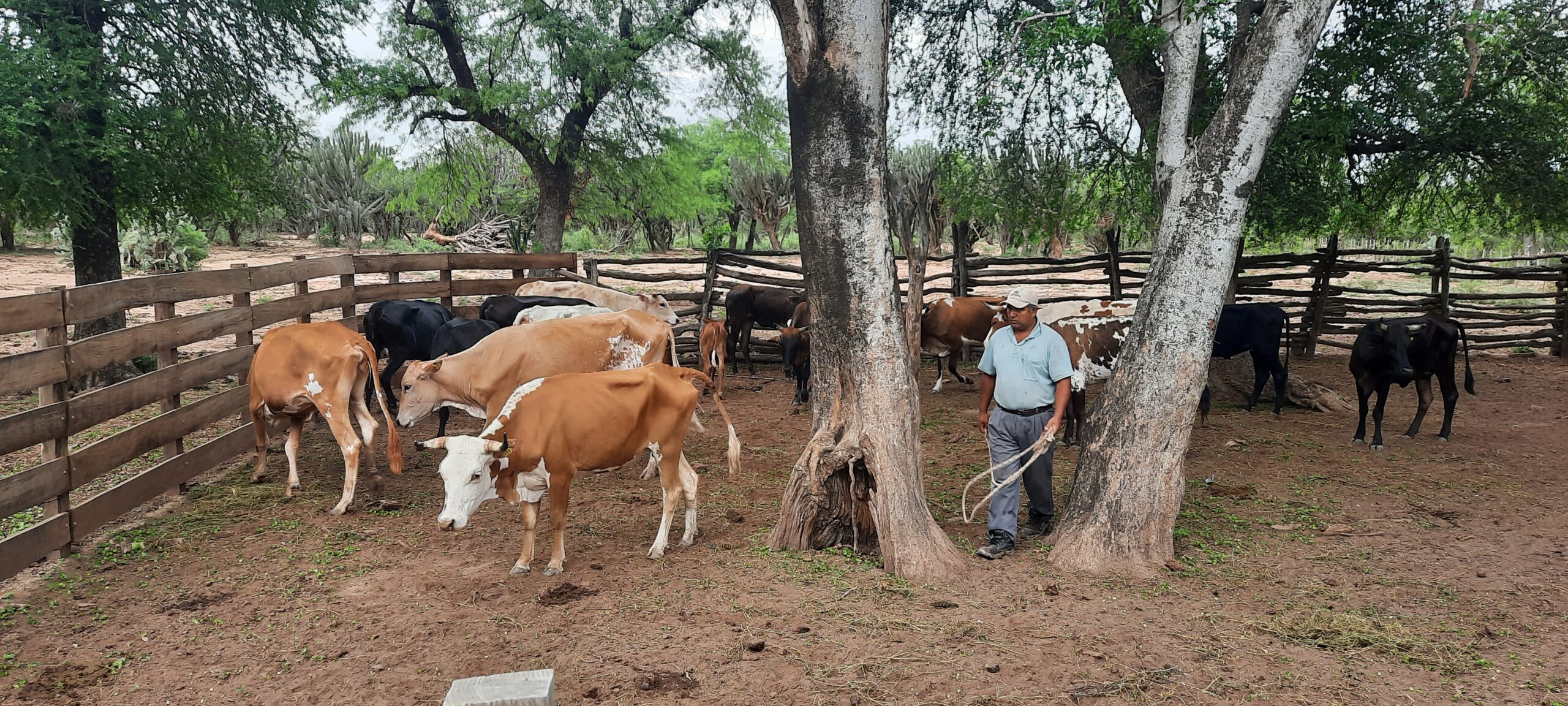
After two years of working with 219 families in the Argentine Chaco dry forest, we restored the first eroded plots by planting pastures and introducing rotational grazing. Furthermore, the first group of producers raised their income by up to 200 percent and weaning rates from between 30 percent to 50 percent by adopting a mix of animal welfare practices, a sanitary plan for the cattle, improvements in water management and access to formal markets.
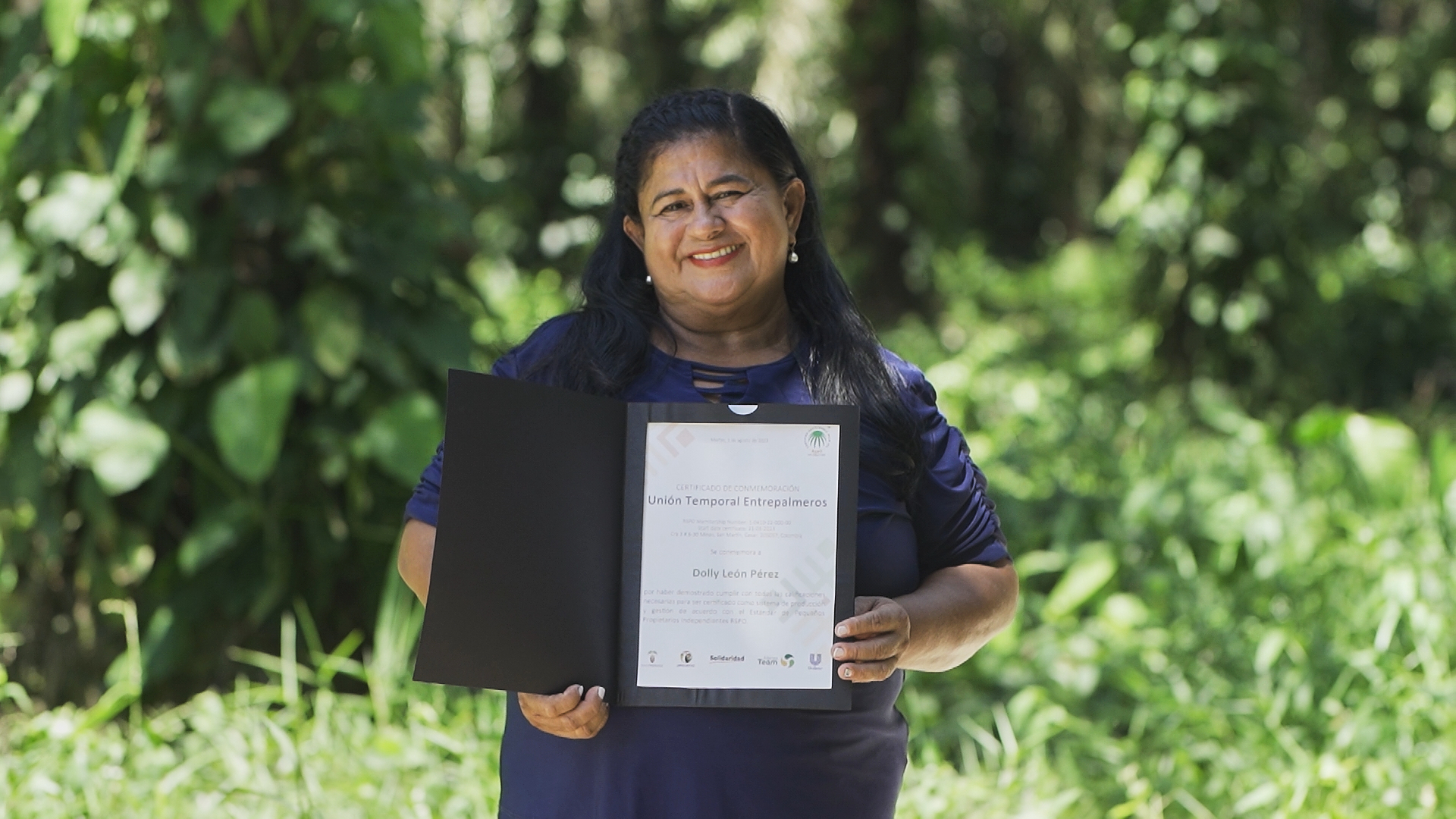
We supported a first group of 41 independent small-scale producers in Colombia (Entrepalmeros) and Peru (APROMAN) in their efforts to become RSPO certified. This is a significant milestone as this certification scheme is typically pursued by mills, given its costs and complexity. Additionally, we accredited 25 professionals from Latin America as master trainers to support independent producers on their path to sustainability.
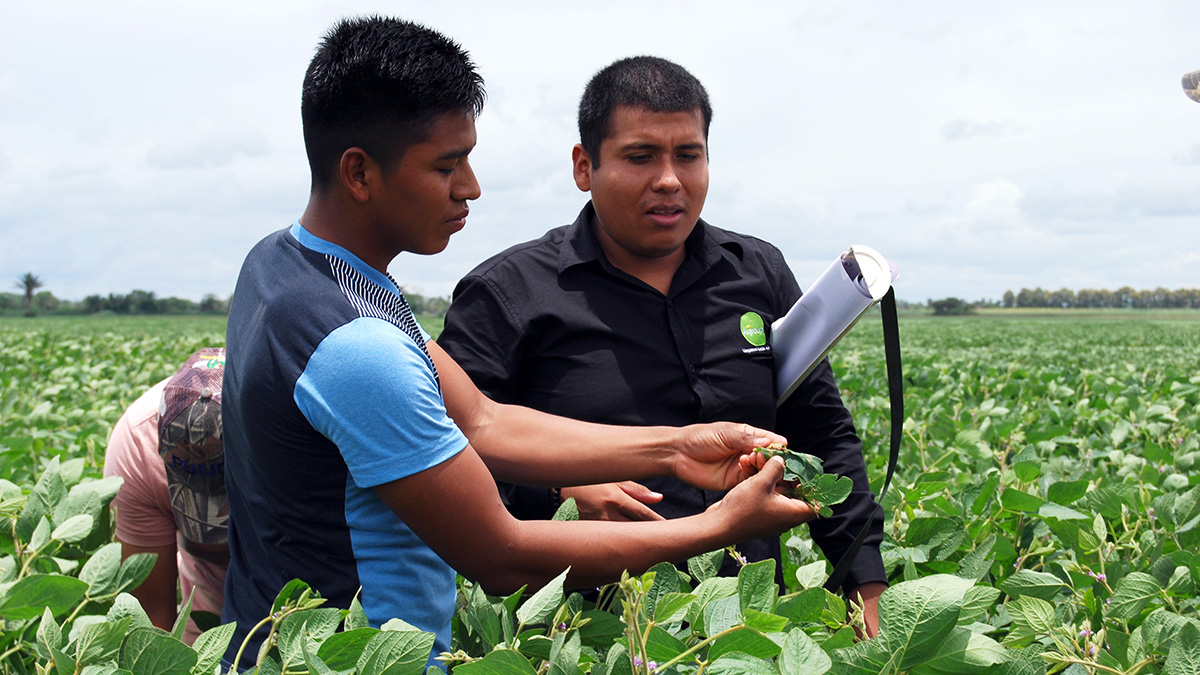
After 3 years, we concluded our first collaboration with Cargill in Bolivia, directly working with 200 producers in adopting sustainable practices across 21,220 hectares of soy. Six hundred one additional producers also received training. In Paraguay, we worked with 445 producers, farm workers, and staff from the cooperatives, resulting in 6,998 hectares under sustainable management.
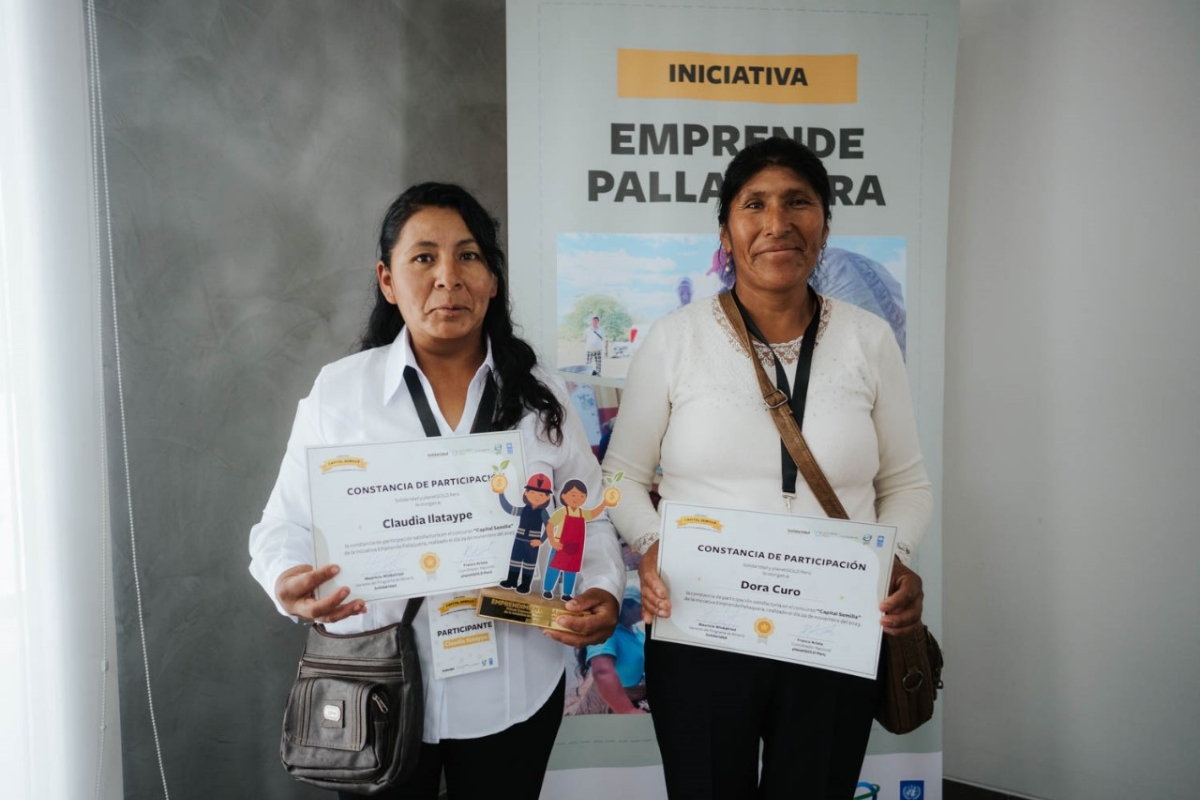
In order to diversify their income, we provided microenterprise management and business development training to 80 ‘pallaqueras’, women gold miners, in Peru. We also provided tailored technical assistance for their specific ventures. A seed capital competition was held, where one venture won 4,000 US dollars to start operations.
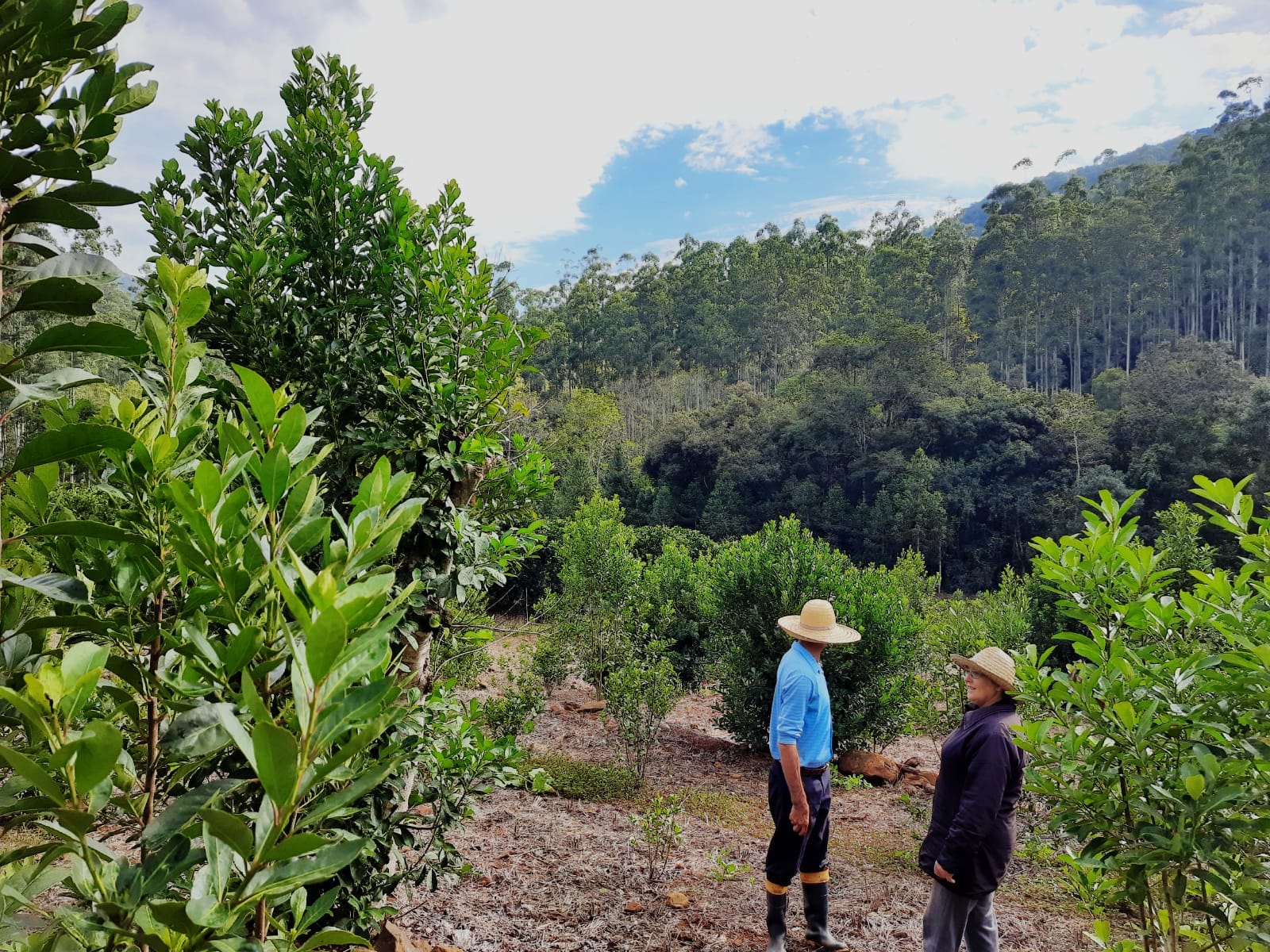
In Brazil, we restored 190 hectares through assisted natural regeneration and another 100 hectares using active restoration techniques, which included permanent preservation areas. Additionally, we implemented agroforestry systems with yerba mate on 90 hectares, with a commitment from the local industry to purchase the produce.
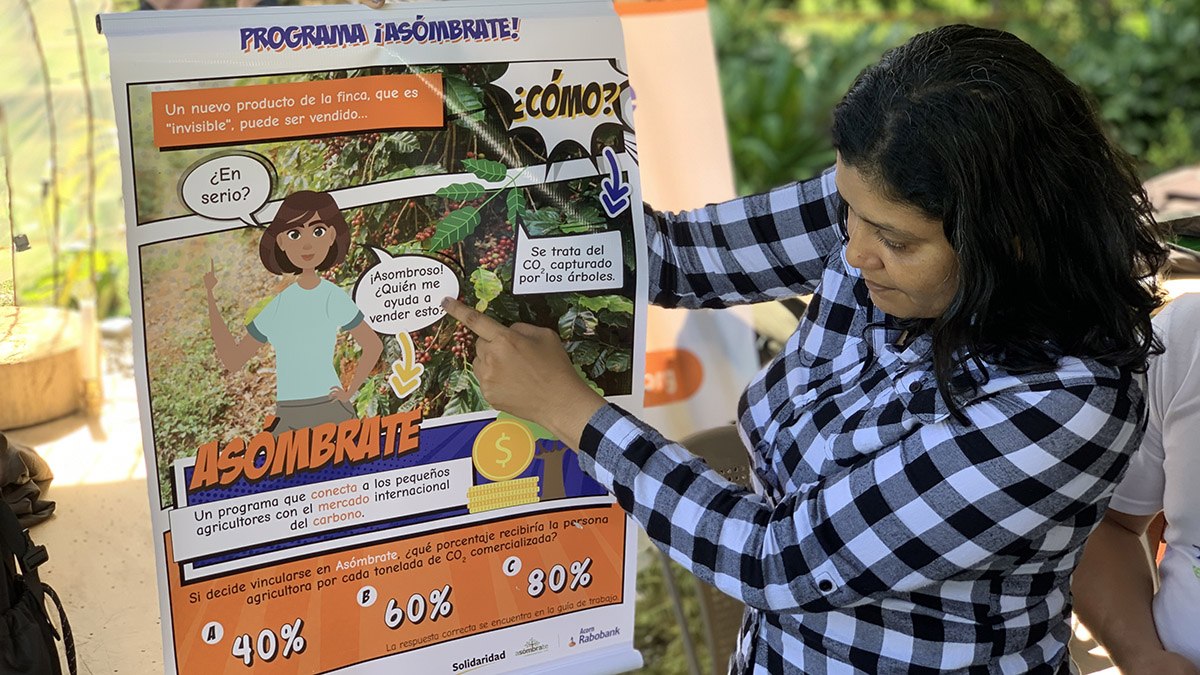
In Brazil, we worked with 549 new hectares of cocoa agroforestry systems and replicated the model in Peru. Additionally, we expanded access to the ACORN platform for cocoa farmers in Colombia, with 7,053 registered producers, and Nicaragua, with 1,217 producers managing 1,962 hectares using agroforestry systems.
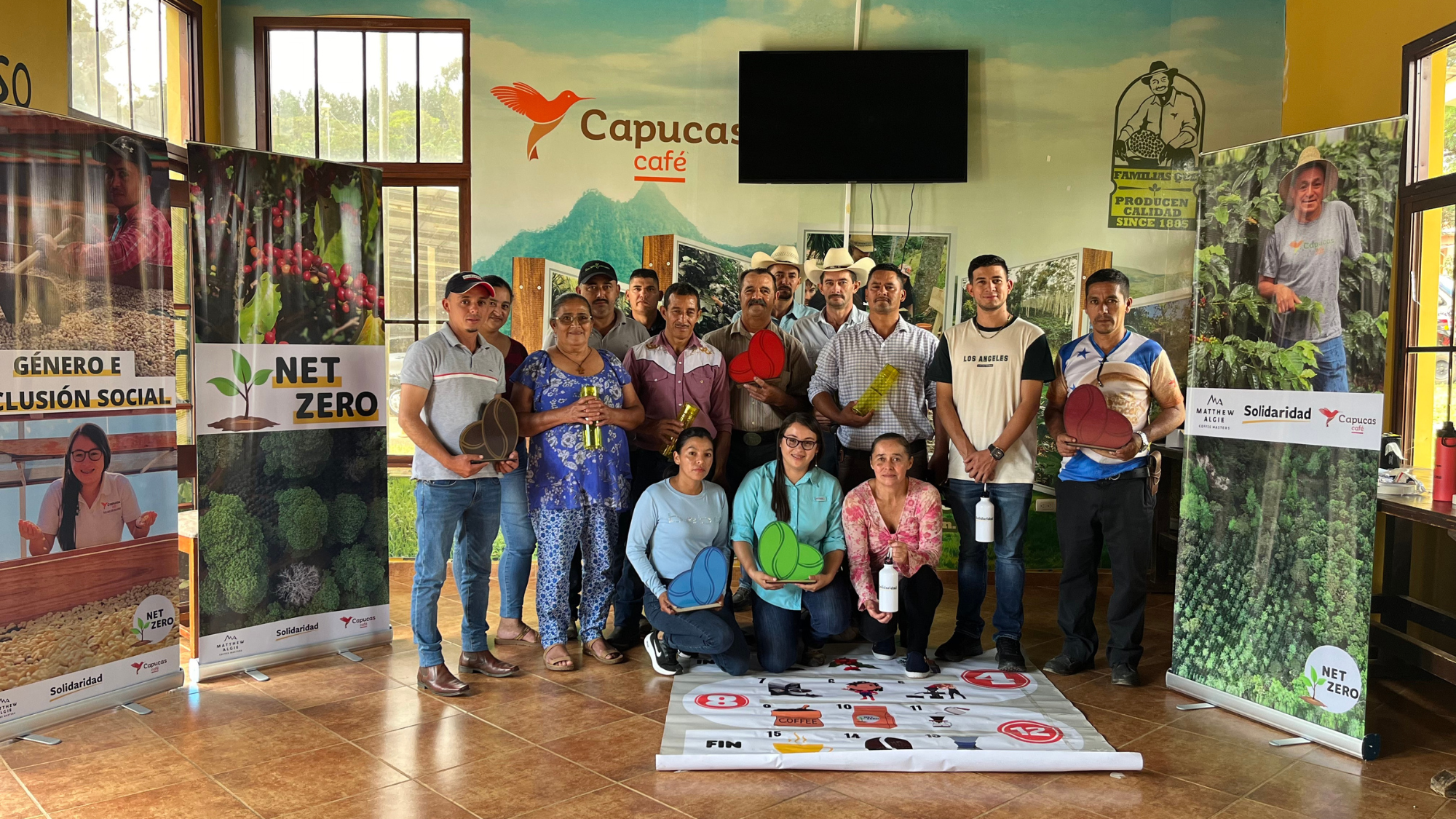
Our model that integrates agroforestry practices for adaptation to climate change and payments for environmental services continued to grow. We onboarded new producers into the ACORN platform in Colombia (9,514), Honduras (1,557), and Nicaragua (6,910), all of whom manage 44,317 hectares under agroforestry systems. In Peru, the first participating 376 farmers received payments for 161,665 US dollars for the carbon captured since 2021.
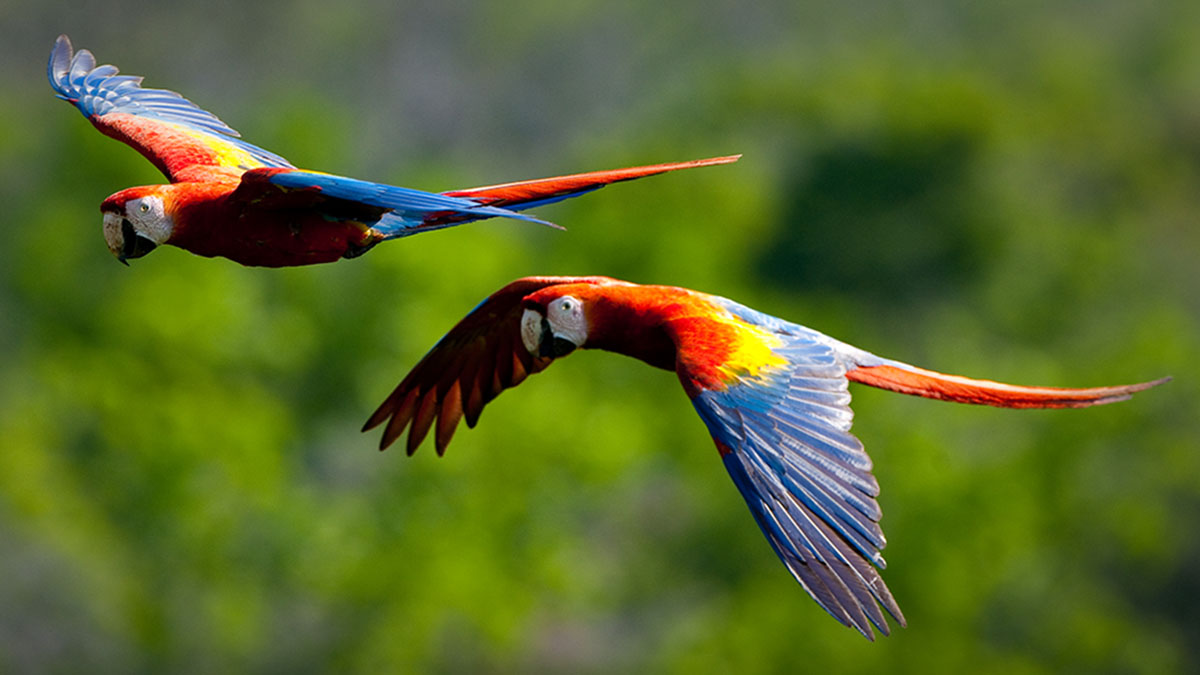
We engaged 158 farmers in biodiversity conservation in Guatemala through the RSPO compensation process of Grupo Hame. In Honduras, we trained 529 farmers and indigenous people in eco-agritourism and birdwatching in 3 protected areas. In Peru we identified four viable bio businesses to enhance forest conservation across Grupo Palmas lands in the Manití region.
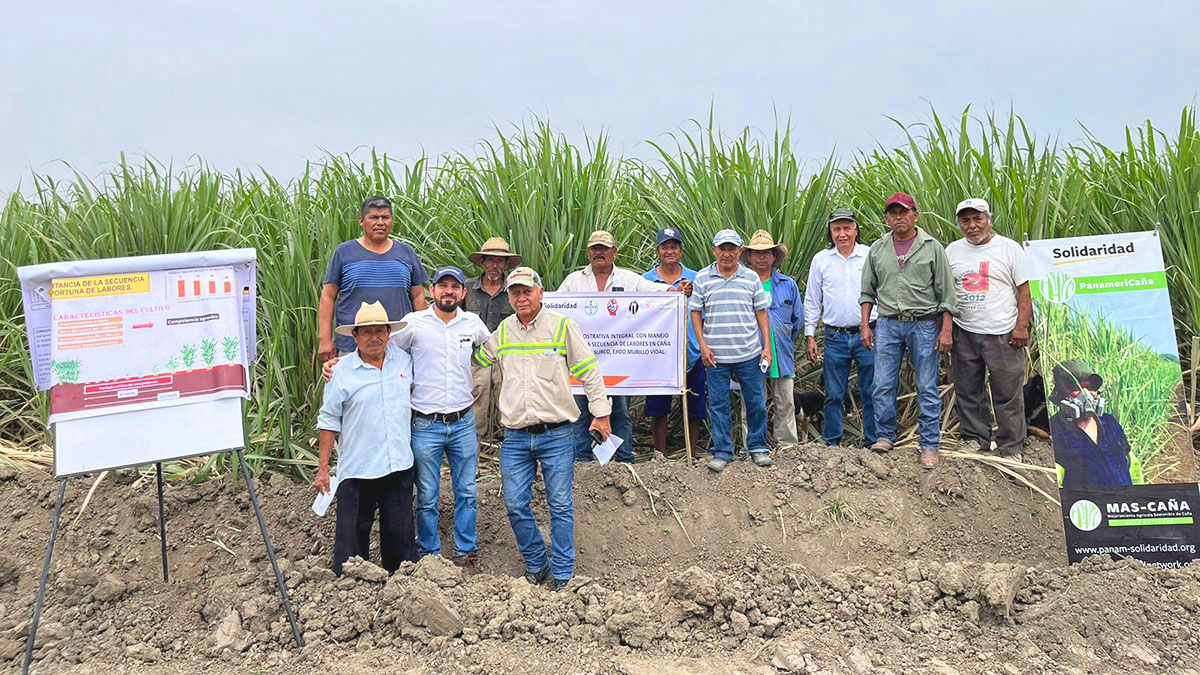
In Mexico, through the MásCaña initiative, we partnered with Barry Callebaut and Bayer to work with 1,188 producers from the Pánuco and El Mante mills. We piloted 100 demonstration plots that integrated the entire sequence of sugarcane operations. These showed an increase of 19.70 tons of sugarcane per hectare compared to producers not covered by the initiative.
Results

51,855
tonne reduction of carbon dioxide emissions (tCO2e)

780,567
hectares under sustainable management

27,427
farmers with access to improved services
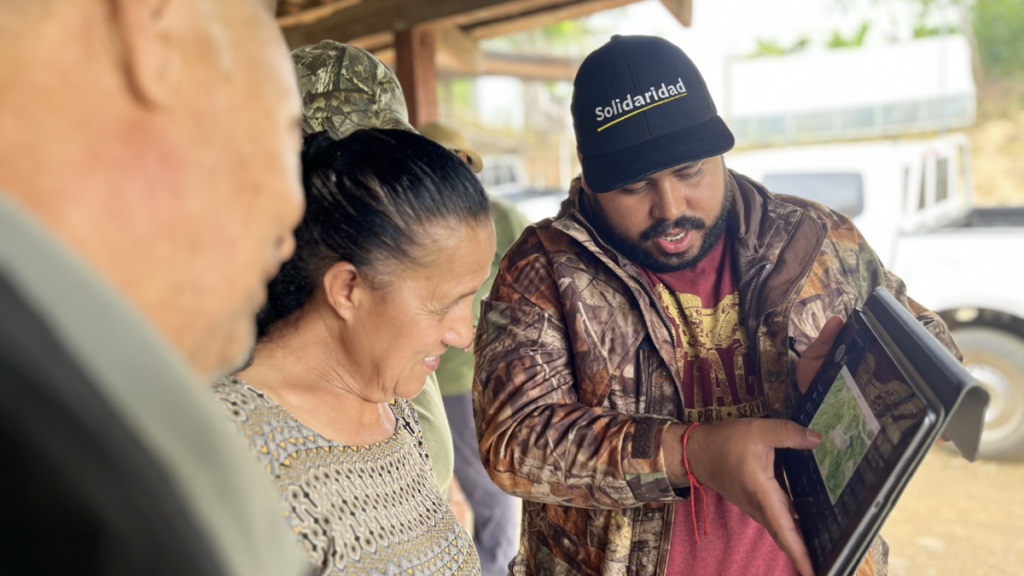
Cultivating Sustainability with Solutions on the Ground
In 2023, Solidaridad Latin America made significant progress promoting sustainable and inclusive agriculture across the region. Our pioneering studies on carbon sequestration in yerba mate production systems in Brazil have laid the foundation for more sustainable and profitable practices, while our restoration efforts in the Atlantic Forest biome have demonstrated the potential for agroforestry to support both environmental conservation and economic development. Our collaboration with cooperatives and industry partners in Honduras has established fully traceable coffee supply chains, enhancing transparency and enabling smallholder farmers to have continued access to European markets.
In 2023, Solidaridad made significant strides in advancing climate-smart agriculture (CSA) and sustainable practices in various sectors across Latin America. These advances took place particularly in the yerba mate and tea sectors of Brazil and Argentina as well as the banana sector in Peru. By working closely with farmers, industry partners, and research institutions, we have demonstrated the potential for CSA to promote long-term viability and resilience in these critical agricultural systems.
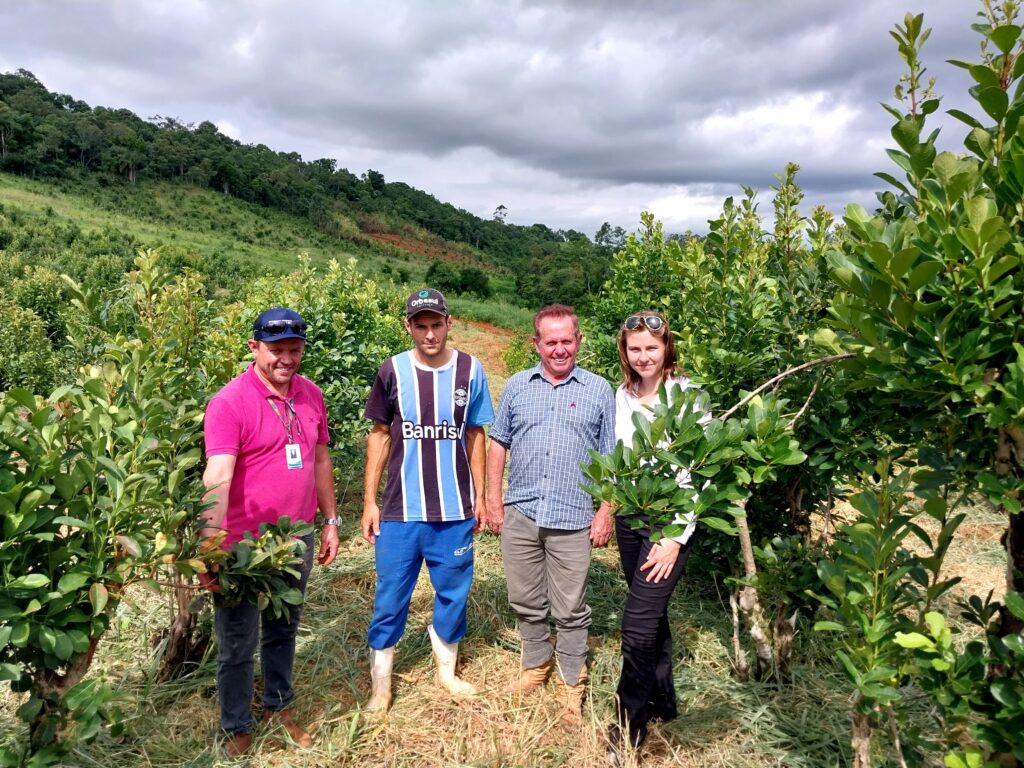
In Brazil, our partnership with EMBRAPA Florestas, the Brazilian Agricultural Research Corporation affiliated with the Brazilian Ministry of Agriculture, has been instrumental in generating valuable knowledge about carbon sequestration in yerba mate production. Through pioneering studies, such as the development of a carbon calculator specific to yerba mate and an analysis of carbon stocks and financial viability, we have laid the foundation for more sustainable and profitable production systems. The Territorios da Mata project has put this knowledge into practice, restoring 190 hectares of the Atlantic Forest biome. The 58 producers who received these systems already have the guarantee of purchasing the yerba mate produced from the local industry when production begins. The Aliados do Campo project, building on the success of the former, has further strengthened the adoption of good practices among small-scale yerba mate farmers in the Alto Uruguai region of Rio Grande do Sul. By providing technical assistance and training, the project has contributed to an average increase of 3.15 tons per hectare and an additional 4,200 Brazilian reals per hectare in the first year alone.
In Argentina, the pilot project supported by Syngenta and Establecimiento Las Marias has demonstrated the effectiveness of a comprehensive approach to promoting sustainable practices. By combining the provision of inputs, training modules, and technical assistance visits with the buying company, the project has supported yerba mate producers in implementing regenerative agriculture practices across 1,023 hectares. The work with the buyer has also led to improved technical assistance services which became more comprehensive considering sustainability, productivity and efficiency objectives aligned with the farmer. In 2023, we tested this model with a group of ten suppliers. By the end of the year, Las Marias was starting to extend this approach to their supply base that represents 80 percent of their production.
A similar process happened in the tea sector which started with a pilot programme and has now scaled to an ambitious project with Twinnings, a major tea buyer, who aims to measure CO2 emissions and help producers reduce their carbon footprint while they adopt regenerative practices. By engaging with tea processors, the project has sought to demonstrate the tangible benefits of sustainable practices and disseminate the results throughout the value chain.
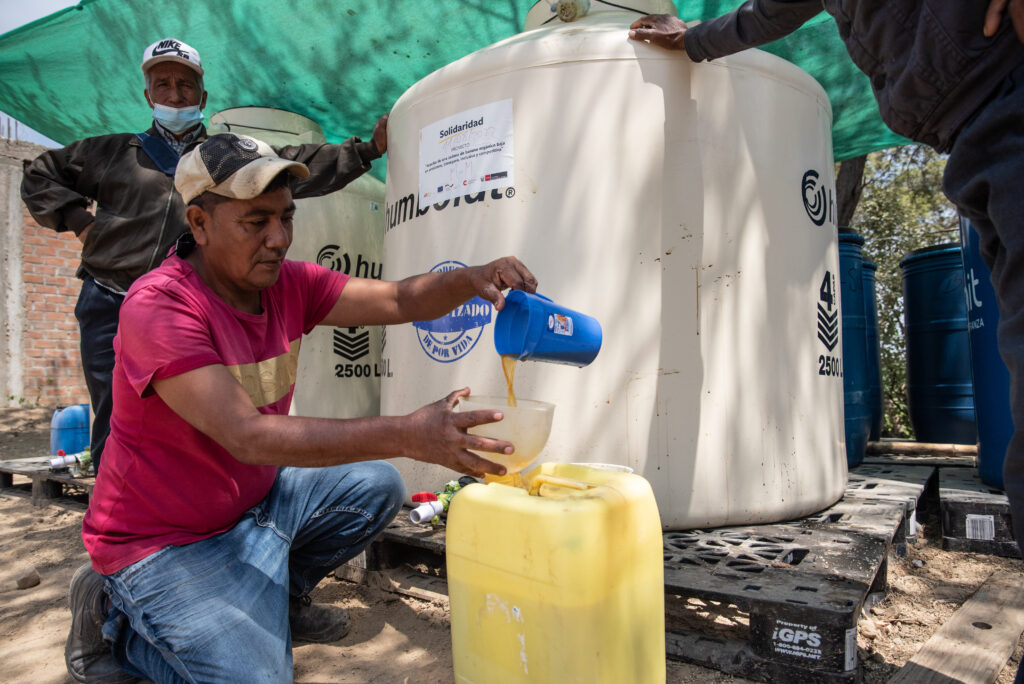
In Peru, we have made progress in transforming the banana sector with a climate-smart agriculture approach. In 2023, we finished an initiative to promote low-carbon circular practices as well as promoting the required services to support this transition. We worked with 1,500 producers and 40 technicians from producer organizations to integrate biosecure and circular practices, which will increase their productivity and income while reducing the risks of Fusarium oxysporum (FOC TR4) infection in their plots. We also worked with cooperatives to provide recycling services and the collection of plastic covers from processing bananas and their subsequent transportation and transformation into corner boards at the ECOBAN plant (a corner board factory and project ally). These corners are used in pallets and as the filling for banana boxes shipped in refrigerated containers destined for Europe, the United States and Asia. The company now has a positive net profit margin to keep operating in the market.
In addition, we developed an agreement of neutral emissions for the sector that connects upstream water sources and downstream regions with banana plantations. This agreement, signed by 41 representatives of public and private organizations, local academia and civil society, aims to strengthen the competitiveness, inclusion and sustainability of the organic banana chain, while improving the conservation of high Andean tropical forests and paramos. Ultimately, this will enhance the quality of life of the rural communities in the provinces of Ayabaca, Huancabamba and Morropón in the Piura Region.
In 2023, Latin America made significant strides in improving technical assistance and access to finance for producers in the region. Cooperatives have been key allies for technical assistance. In Nicaragua, we have collaborated with 46 service providers, including cooperatives and companies, to strengthen their capacities in two main areas. First, we aimed to improve their access to carbon markets using the ACORN platform. Second, we focused on enhancing their technical assistance services. As part of this effort, 293 field staff have received training through the Carbon Farming Academy.
This learning space is hosted within the AgroLearning platform and was developed as a user-friendly and accessible digital environment. Participants linked to the project can access the academy openly and free of charge. While the full impact of the training is yet to be realized, this field staff has the potential to reach 6,500 producers, who we expect will receive payments for environmental services in 2024.
Solidaridad’s support for cooperatives in Latin America extends beyond traditional technical assistance. It focuses on providing new services that are crucial for sustainability. In Mexico and Peru, Solidaridad has supported coffee cooperatives as they optimize the management of various types of coffee waste. The cooperatives have invested in mechanisms to clean and repurpose coffee pulp into compost and liquid fertilizers.
This initiative not only reduces waste but also provides valuable resources to improve crop productivity and soil quality. Furthermore, we invested in bio-filters that clean the wastewater from coffee processing (a significant source of greenhouse gas emissions). The cooperatives have now adopted both of the initiative’s services to clean and repurpose the coffee pulp as well as the biofilters for wastewater, and some producers are using the processes on their farms. As a result, the farmers have access to organic fertilizers at a low cost, enabling them to maintain high productivity levels.
In Mexico, implementing waste management and recycling practices has led to an average income increase for all producers within the cooperative by an average of 30 percent. Building on the success of this model, Solidaridad plans to replicate it by collaborating with other cooperatives in the region and large buyers such as Nestlé, with whom we have started a project to scale regenerative agriculture practices involving 1000 producers.
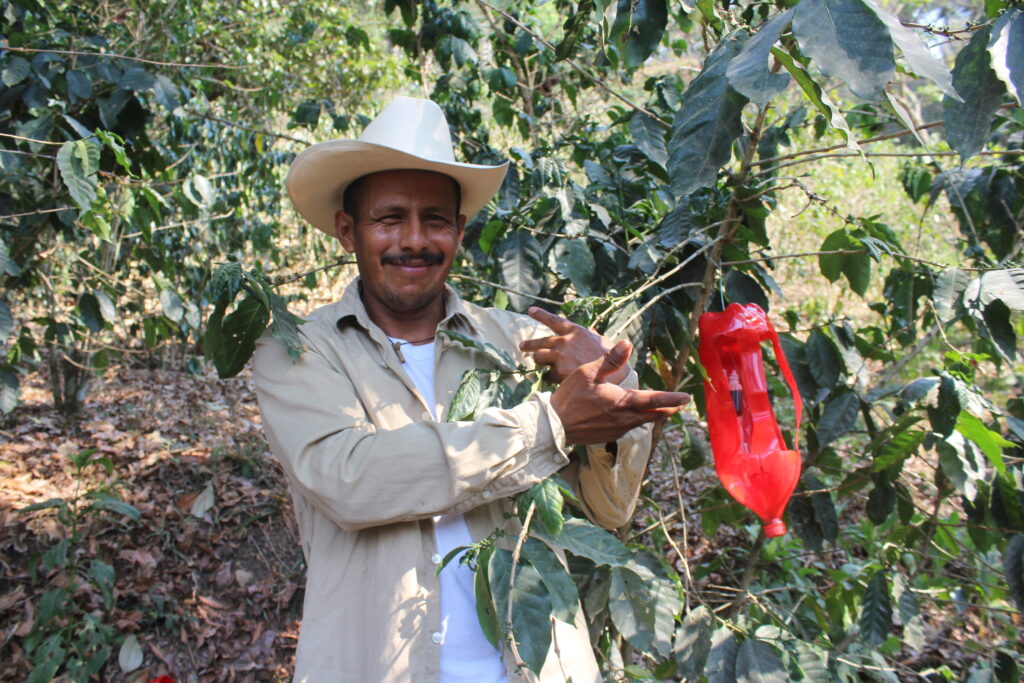
In finance, two notable initiatives deserve special attention. In Colombia, Solidaridad has worked to improve palm oil producers’ training on receiving credit and to improve their access to finance. First, Solidaridad started by providing financial education to over 1,100 producers. It focused on essential topics such as using money to achieve a family’s objectives and the variety of financial products.
In parallel, Solidaridad supported producers in accessing savings accounts with debit cards using a system called the Tarjeta Palmera (Palm ID). Fedepalma promotes the use of these services to its members. In turn, they receive a bank account from Banco Agrario linked to their palm identification. In 2023, 450 producers activated this service. Moreover, Solidaridad has supported producers in their efforts to access credit for their investments in sustainable production. A total of 884 oil palm producers applied for credit for fertilization or investment in other sustainable practices. Of these, 722 successfully secured credit totaling 5.21 million US dollars. Additionally, the Agroprestamo tool, which uses fintech to provide credit and is linked with other information systems like Extension Solution, continued its development throughout 2023 and reached 942 registered palm producers, of whom 447 have an active credit account.
In Brazil, Solidaridad is bringing financial services to traditionally excluded producers. A new microcredit project for cocoa and livestock producers was created in collaboration with partners such as Arapyaú, Tabôa, and the Brazilian Development Bank (BNDES). The project, structured as a blended finance arrangement, has mapped the first credit-borrowing families and is currently developing funding projects with producers. The goal is to benefit 100 families with access to credit, totalling an investment of 3 million Brazilian reais.
Along similar lines, the Cerrado Vivo project was launched to map and promote adjustments to financial mechanisms with sustainable credit lines, encouraging soy producers in the Brazilian Cerrado (MATOPIBA) to adopt them. During 2023, a comprehensive survey of currently available credit lines and their specific criteria was conducted. The project aims to identify and enhance sustainable financial mechanisms and disseminate them to producers. In the future, pilot models with producers will be encouraged and monitored, providing them with opportunities to receive financing to improve their production management towards sustainability.
Our efforts have focused on two key areas: gender policies and aligning efforts on deforestation-free production, with a focus on compliance with EU deforestation regulations.
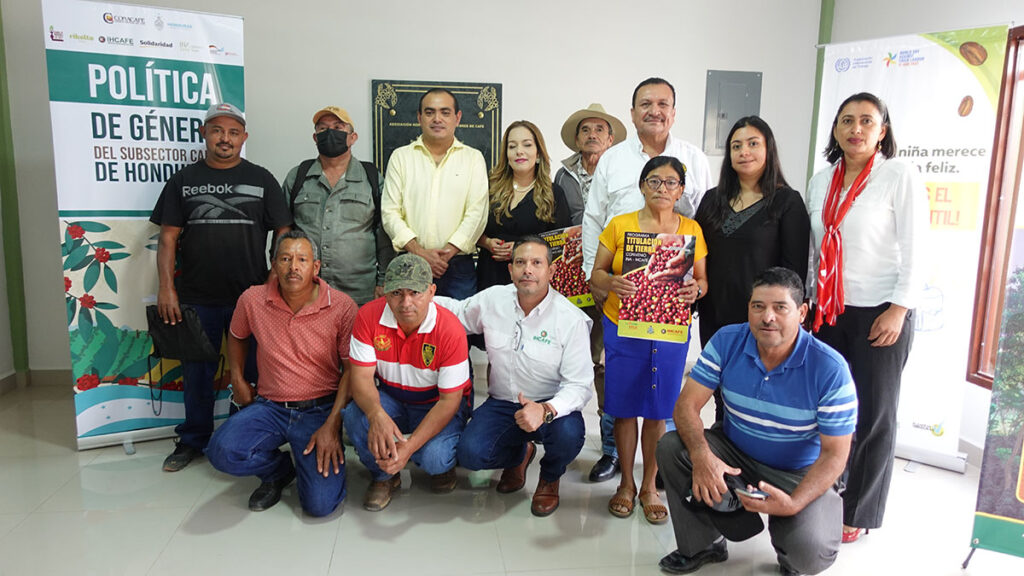
Gender efforts have thrived in Honduras and Peru. In Honduras, significant progress has been made on the implementation of the gender policy in the coffee sector. Through Solidaridad’s political advocacy work, a Gender and Social Inclusion Unit was established within the Coffee Secretariat. The Coffee Secretariat, as the responsible public institution, plays a vital role in linking with other stakeholders, such as civil society and the private sector, to promote the adoption of the different parts of the gender policy by implementing stakeholders (private sector actors, CSOs, and other government institutions).
This work was done with AMUCAFE, a network of women in coffee. We launched a pilot scheme for the formalization of land titles for 48 women coffee producers. In Honduras, women in the coffee sector have limited access to property titles due to social and cultural factors. With formal legal titles to their coffee farms, women can apply for bank loans, market their coffee, register with the Honduran Coffee Institute (IHCAFE) (a mandatory requirement for exporting and marketing coffee in Honduras), and improve their living conditions.
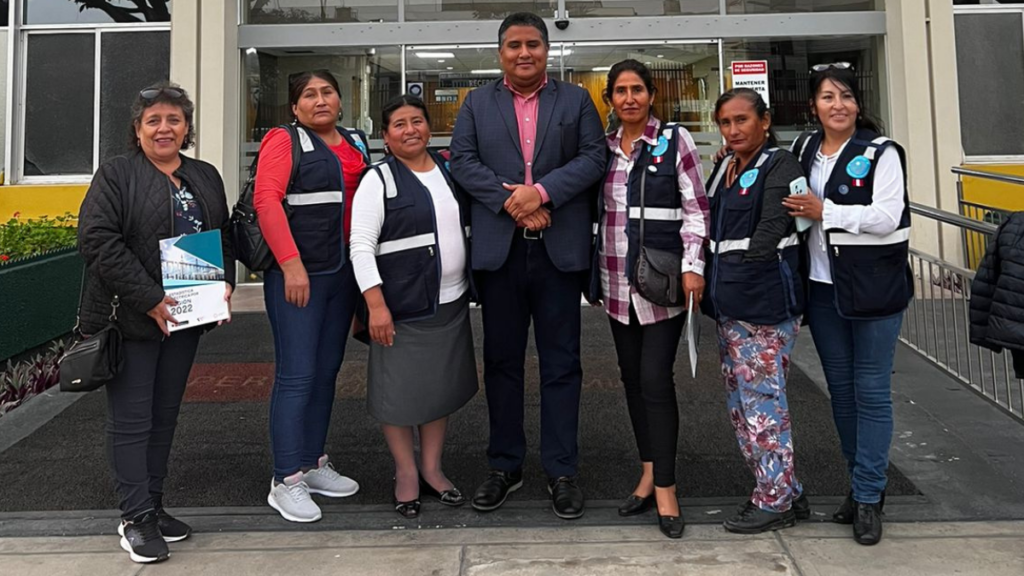
In Peru, another significant milestone was achieved with the approval of the first gender plan for the Artisanal Small-scale Mining (ASM) sector in Peru. Women constitute 20 percent of the estimated ASM workforce comprising of approximately 80,000 women miners. However, existing regulatory frameworks and sector promotion policies have been gender-blind, and fail to recognize the distinct gender roles in ASM. Solidaridad’s RECLAIM Sustainability! project facilitated a working dialogue between the National Network of Women in ASM (NNW/ASM) and political decision-makers from the Peruvian Ministry of Energy and Mines (MINEM) to analyze the sector’s primary gender challenges and collaboratively develop a comprehensive plan to address them. This involved supporting NNW/ASM in their effort to systematize the main demands and expectations of women miners; to foster regular working meetings between NNW/ASM and MINEM; and to monitor MINEM’s progress in implementing gender-responsive policies. This is a breakthrough in the sector. We will continue to work alongside and strengthen the NNW/ASM, a key ally during this process.
Additionally, Solidaridad actively engaged stakeholders in the efforts to comply with the European Union Deforestation Regulation (EUDR) in 2023. These efforts included work to understand the impact of the regulation in coffee and cocoa, and then linking these challenges to existing work plans agreed upon by the sector. This work was done in Colombia via the Coffee, Forest, and Climate Agreement signed in 2021, and in Peru via the Cocoa, Forests, and Diversity Agreement.
Solidaridad commissioned four studies to analyse the impact of the EUDR in the region:
- Honduras carried out an analysis of coffee producers in a pilot area to assess deforestation in their farms. The study revealed that 16.91 percent of the analyzed area has had deforestation.
- In Nicaragua, Guatemala and Mexico, Solidaridad evaluated the impact of the EUDR on small coffee farmers. The initial findings of the study have revealed that up to 33 percent of smallholder coffee volume is exported to the European Union, yet there is a lack of awareness and preparedness regarding the new regulation. The study identified priority interventions for Solidaridad towards raising awareness, capacity building, georeferencing services and local-level due diligence based on measured and perceived deforestation and degradation.
- In Peru, we conducted a similar study on coffee and cocoa with support from Solidaridad, the Business Alliance for the Amazon, the Tropical Forest Alliance (TFA) and the Earth Innovation Institute. The study included forest monitoring and developed a Technical Guide for Deforestation Monitoring for companies and associations, which aims to provide practical tools and methodologies to monitor deforestation.
In 2023, Solidaridad collaborated with various partners to implement innovative mechanisms that demonstrated how private actors could support sustainability and benefit producers.
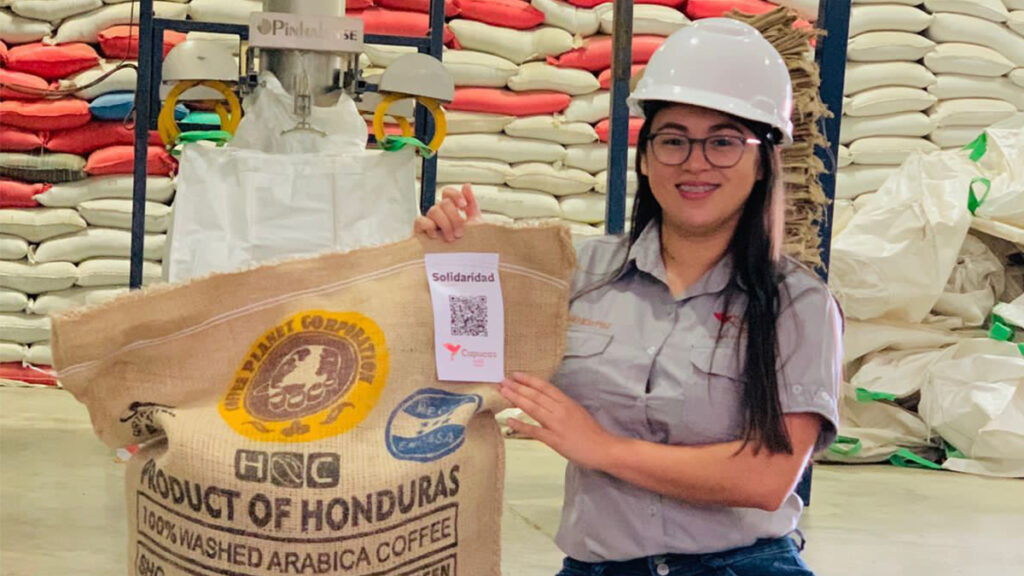
In Honduras, Solidaridad partnered with the Capucas Cooperative and Molinos de Honduras to ship four fully traceable containers of coffee from 800 producers to the European market through two international buyers, Matthew Algie and Nespresso. Using blockchain technology through the TRACE tool from our partner FairFood, the initiative included producer data, codes, a map of the region, buying and selling transactions and coffee quality. This effort brought transparency to the value chain, and allowed small coffee growers to have greater access to the market and better position for their products. Notably, the cooperative has now started to trace all its coffee, beyond the one sold in this transaction, highlighting the positive impact this initiative had on promoting transparency throughout the entire supply chain. Along similar lines, this initiative started with the buyer, Matthew Algie in 2022. It found traction with Nespresso, who became a new buyer in 2023.
In Brazil, a revolutionary model was implemented for smallholders to pay for technical assistance through a scheme with a major buyer, Cargill. As a result of a partnership between Cargill and COOPERCAU (a local cooperative), a new trade system was developed. COOPERCAU received financial resources in advance from Cargill which provided technical assistance to cocoa producers, who then repaid the assistance with cocoa beans at the time of harvest. Smallholder producers pay for this fundamental service as it has demonstrated its role as a way to increase income in previous years of the project. COOPERCAU has also gone through an organizational support process with Solidaridad in which they developed capacities to integrate their technical assistance model and strengthen their service provision. This barter scheme builds on a previous arrangement developed with Cargill where producers exchanged cocoa beans for fertiliser. The success of this project demonstrates the importance of support from large market partners like Cargill in driving sustainability and bringing benefits to smallholders.
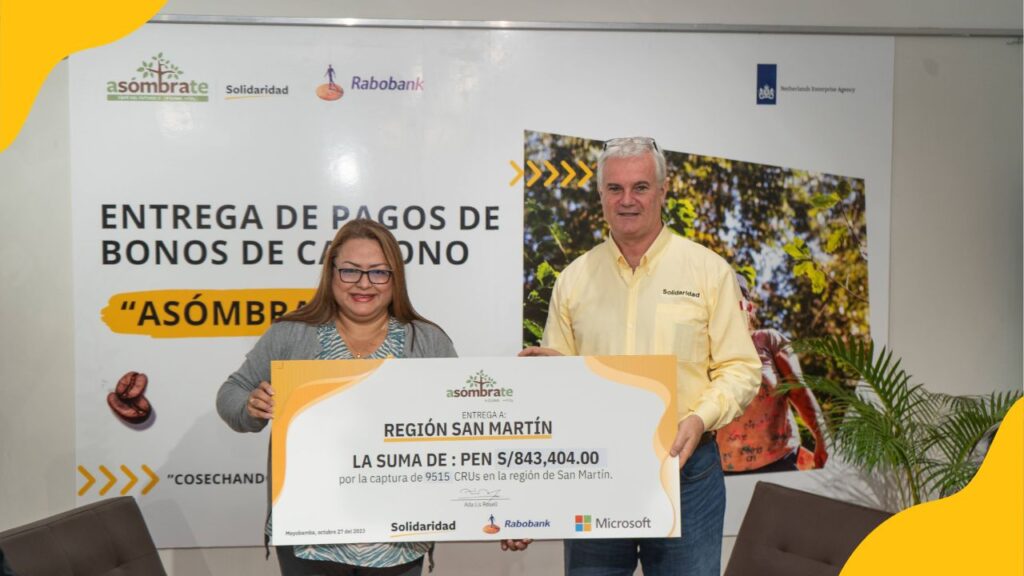
Another groundbreaking mechanism in the region was the scaling of the initiative to connect small agroforestry producers to the voluntary carbon market through the ACORN platform. We continued to scale-up this work in 2023, building on the results of Solidaridad programmes in previous years that included the promotion of agroforestry within a broader climate-smart farming model.
By the end of 2023, 32,627 smallholder coffee and cocoa producers across Colombia, Nicaragua, Peru and Honduras were registered on the ACORN platform An initial 3,089 producers received payment for the sale of carbon from their farms. In some countries, engaging families in ACORN has been achieved by teaching young community members how to collect data, create farm polygons and onboard producers to the ACORN platform, generating new skills and opportunities locally.
In many cases, identifying mechanisms to pay farmers their earnings from the sale of carbon credits has proven to be a challenge given the high transaction costs and the fact that very few producers have bank accounts. Colombia, Peru and Nicaragua have studied the different options to make these payments, while actual payments have already been made in Colombia and Peru. In Nicaragua, additional time was needed to navigate the complex environment for making farmers’ payments and comply with tax laws. This led to the identification of a new partner that will support digital payments and financial literacy training starting in 2024, with payments due to be made in early 2024.
We also carried out a cost-benefit analysis of ACORN projects in Colombia, Peru, Nicaragua and Honduras to better understand the project’s viability. From Solidaridad’s perspective, we sought to identify the minimum project scale required for implementation without grant funding and identify opportunities to improve cost efficiency. The business case was forecast over a 20-year period, including all Solidaridad/local partner costs and income, based on 10 percent of Carbon Removal Unit (CRU) sales.
Initial results showed that costs to Solidaridad were higher than anticipated over the course of the first three years due to significant investments in project development, data collection, farmer organisation, training and awareness raising. These costs were not matched by income derived from lower-than-expected CRU sales. The inverse relationship between costs and income (costs per farmer are highest at the start and reduce over time, while income per farmer is lowest at the start and is forecast to increase over time) highlighted the need for significant grant funding for the first three years of operations. The initial findings of the study revealed that a minimum of 8,000-12,000 hectares and a sales price of 35 euros per CRU will be required to cover ongoing operational costs in the medium term. The final analysis will be available in early 2024 and will inform decision-making for both existing and new projects in Latin America and beyond.
Change that Matters Stories
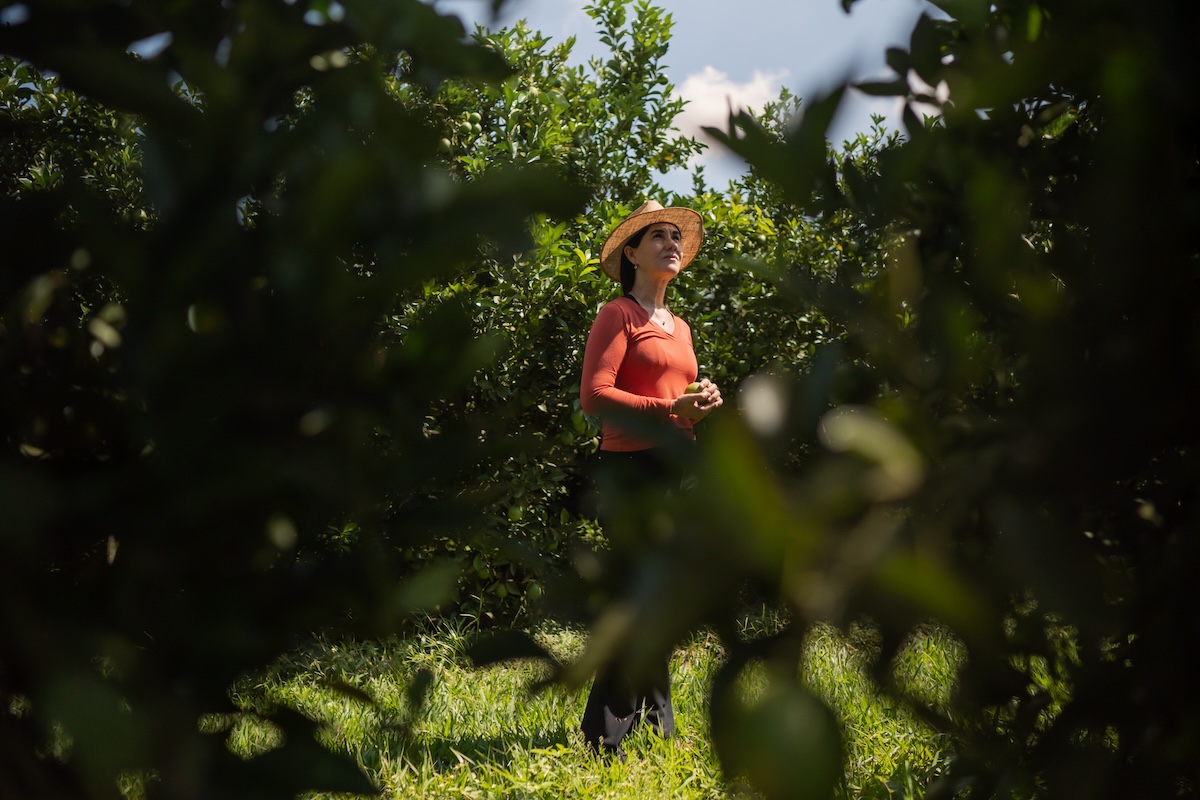
A WOMAN’S RESILIENCE BEARS FRUIT
Sandra Zanardi never saw herself as an orange farmer, but after the death of her husband, she took the reins of her family’s orange grove in Brazil. Now, with support from Solidaridad’s Fruto Resiliente project, Sandra has improved her farm’s performance and is set to reap a plentiful harvest. In the process, she has created a vibrant new future for herself and her children.

PUBLIC-PRIVATE PARTNERSHIPS ACHIEVE BREAKTHROUGHS IN BIODIVERSITY CONSERVATION
Conservation groups, local communities, government agencies and leading businesses work with Solidaridad to safeguard Guatemala’s Laguna del Tigre National Park, part of the Maya Biosphere Reserve and one the world’s great wilderness areas.
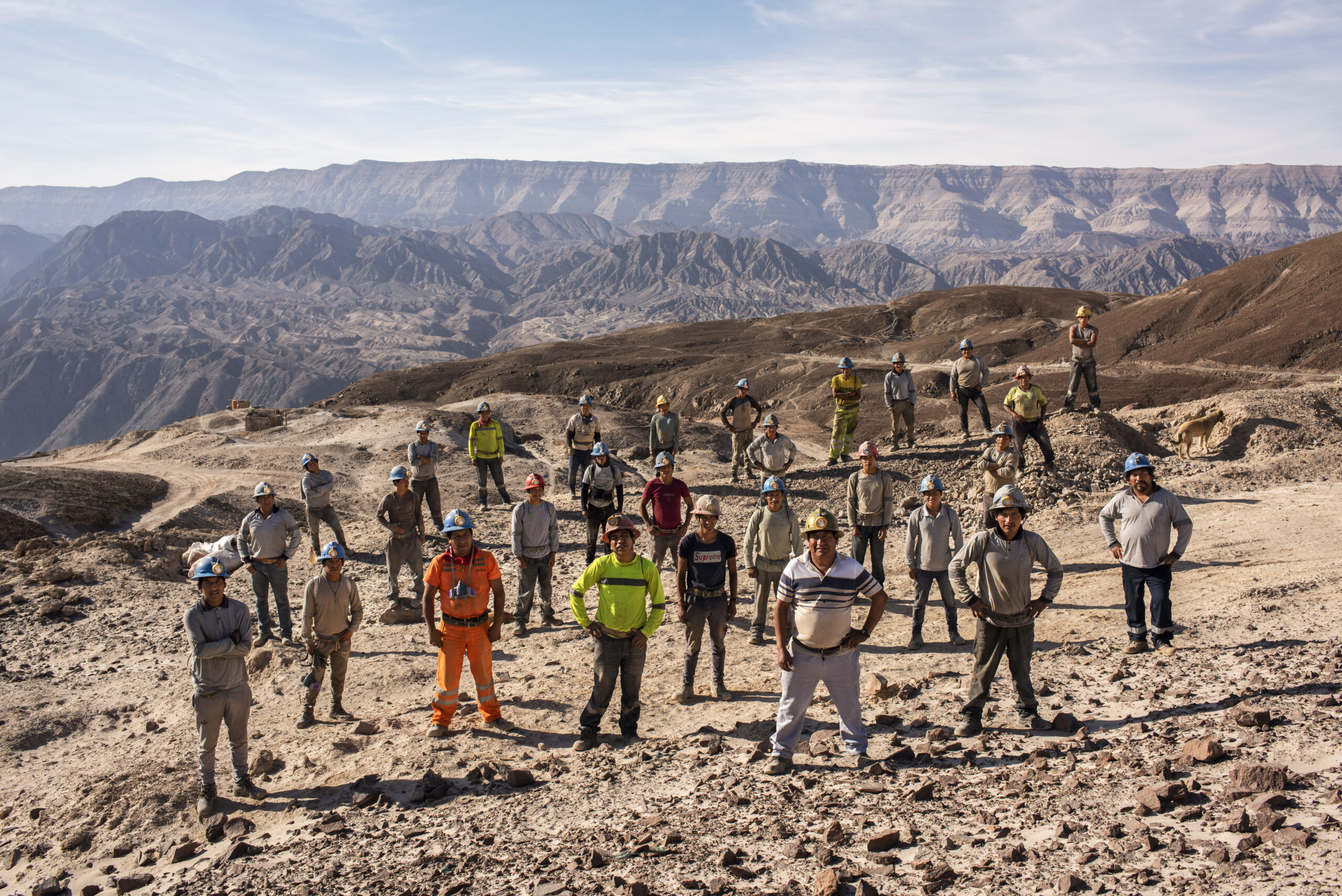
JONY RODRIGUEZ, A MINER, AN ENTREPRENEUR
In a mining town of Peru, surrounded by mountains and arid landscapes, we meet Jony Rodríguez. He is a miner still in the process of formalization, and has faced many challenges to turn his mining activity into a prosperous business. Thanks to the “Artisanal Mining Entrepreneurial Loan”, he accessed financing and technical resources. This is the first financial product offered by formal banking that caters to artisanal mining. The credit allowed him to modernize his equipment, improve safety, and increase productivity. Now, with his business and his reputation as an entrepreneur on the rise, Jony aims to gain the trust of more financial institutions to further improve his activities.
Innovative Sustainability Solutions
Social Inclusion and Fair Ownership
Improving opportunities for women and artisanal miners
Digital platforms can help to bring solutions to scale and include groups that may otherwise not be reached.
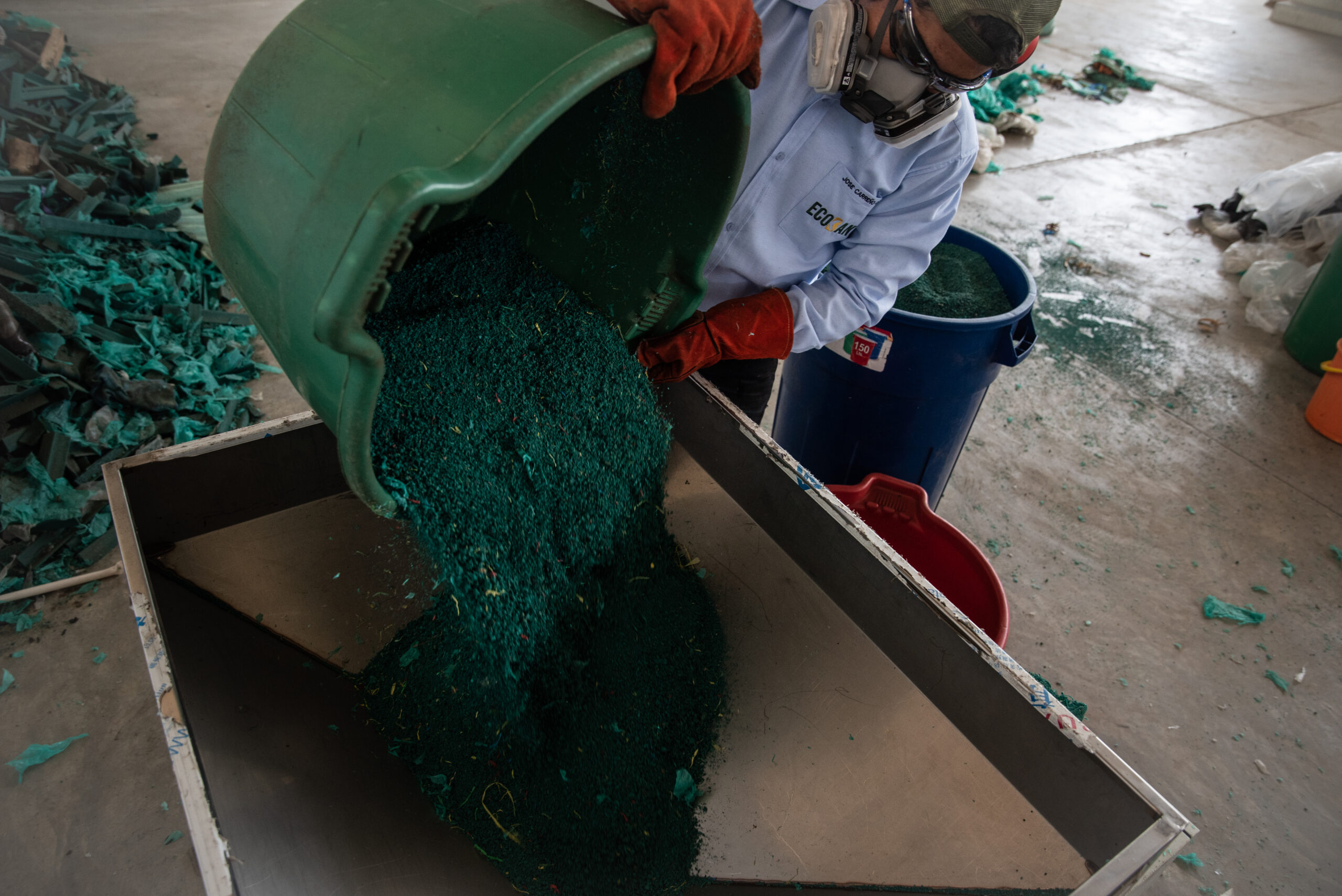
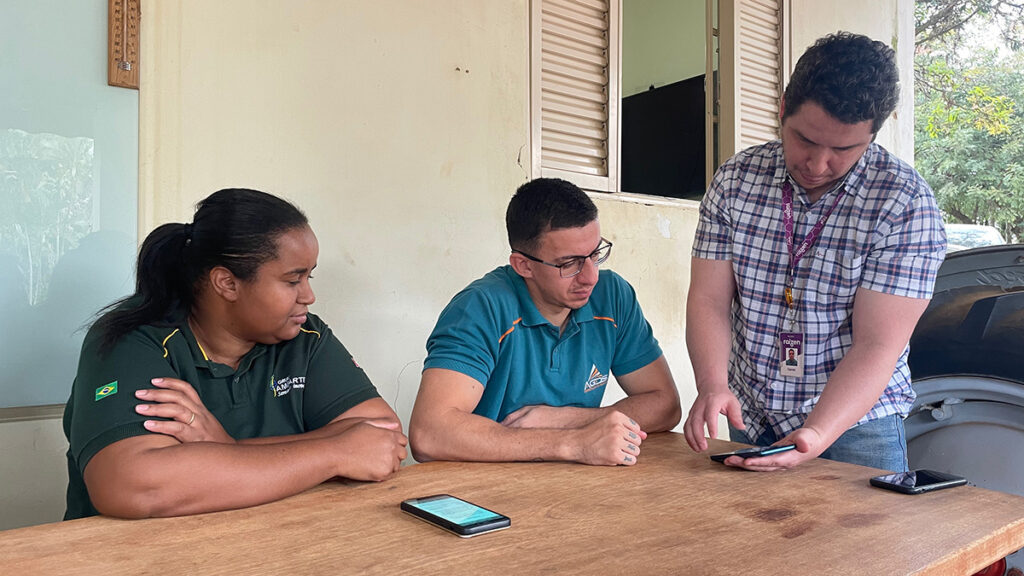
In 2023, the Digital Unit conducted a co-creation process with cocoa and livestock farmers supported by the Amazon Programme in Brazil for the ideation of digital innovations addressing common issues related to information access and knowledge sharing. This co-creation process resulted in the design and prototyping of a new digital tool, called Solis, that builds on social media widely used by producers and extension staff and on Extension Solution, the existing mobile application developed by Solidaridad regionally to support field staff in their daily routine. Solis combines top-down (expert-to-farmer) with bottom-up (farmer-to-expert) and peer-to-peer (farmer-to-farmer) modes of communication to increase farmers´ agency, and creates practical conditions for the co-creation and sharing of audiovisual content on locally relevant practices.
We envision Solis as a social technology that harnesses the power of digital tools to facilitate the creation of a digital learning community which is aimed at scaling good agricultural and low-carbon practices. This process took place in the context of the ATDT project, implemented in partnership with the Alliance for Biodiversity and CIAT and funded by IFAD within the framework of the Agroecological Transitions programme.
We also started to develop and test digital innovations designed to bolster the implementation of strategies to promote decent work at the field level in palm oil production in Colombia and Honduras. The apps Agroworker and Trabajo Decente were tested with organisations to assess their compliance with labor rights and security requirements, and as a way to generate a work plan to improve and facilitate communication between employers and workers.
In 2023, the LATAM Digital Unit started to test innovative approaches to encourage the use of digital tools and to nudge farmers towards the adoption of better practices by providing short-term, tangible incentives combined with actionable recommendations for behaviour change. One of these initiatives is the Impulsa project, funded by the Bonsucro Impact Fund and implemented with sugarcane farmers across four countries in South America (Brazil, Colombia, Paraguay and Uruguay), with support from Raízen, Koppert, Cenicaña and ALUR – Alcoholes del Uruguay. The project combines information technology with behavioural science to effectively foster sustainability improvements in a way that favours farmers, as well as through a simple non-bureaucratic incentive and reward mechanism. To make this happen, the Digital Unit leveraged its existing app, Farming Solution, to help farmers self-assess their practices, and then prototyped a function for incentives and rewards that will be seamlessly integrated into the app.
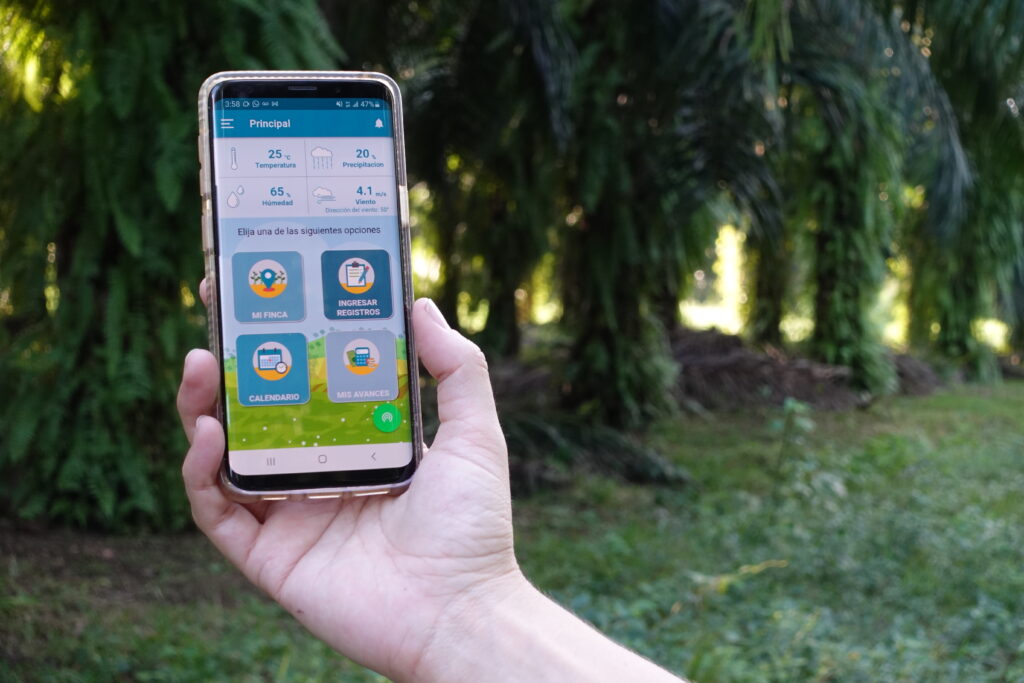
Methodologies based on incentives to encourage the use of digital tools have also been tested. These resulted in an increased engagement from farmers. Drawing insights from these trials, gamification features will be added to Farm Diary. This enhancement will empower users to earn and redeem points for rewards, fostering healthy competition among users.
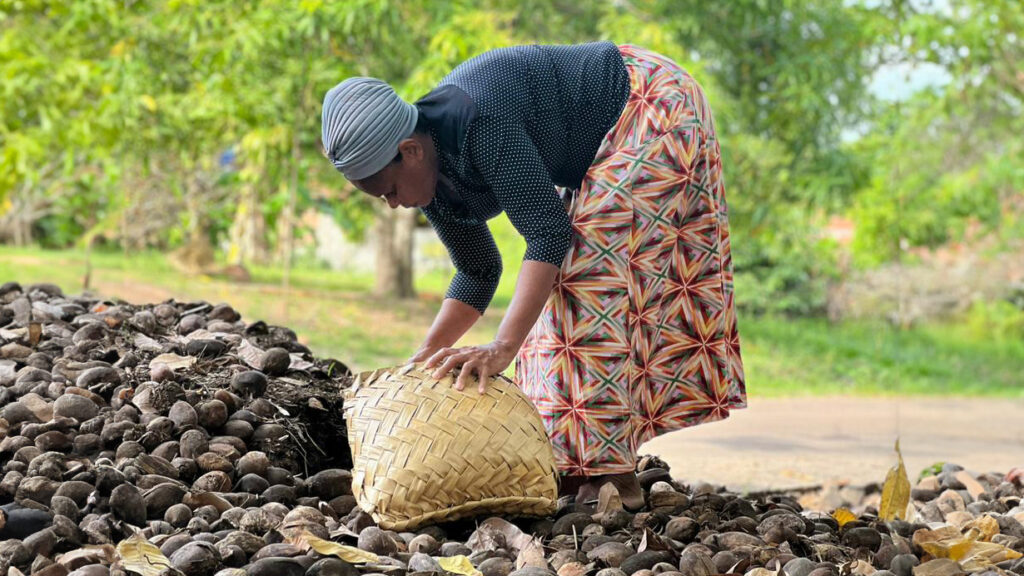
In Brazil, Colombia, Honduras and Peru, Solidaridad has actively promoted gender equality and social inclusion within various sectors during 2023. Efforts included inclusive technical assistance training, gender analysis studies, and the promotion of female participation and leadership in different value chains. For instance, In Brazil, under the project Low Carbon Landscapes in the Cerrado: Increasing the Sustainability of Soy and Babassu Chains in Maranhão, we increased female participation and leadership in soy and babassu chains, while involving various stakeholders and conducting gender analysis studies.
In Peru, the first gender plan for small-scale and artisanal mining was approved with a two-year execution period led by the Peruvian Ministry of Energy and Mines. In Colombia, collaboration with RVO, Fedepalma and GIZ will result in a gender policy document for the oil palm agroindustry by early 2025. In Honduras, the RECLAIM Sustainability! programme helped to lead the implementation of a gender policy, establishing Solidaridad as a leader in political dialogue and advocacy in the country.
Organization & Governance
Reaching new heights
Growing our team and our borders
For the first time in history we gathered 64 team members from all Latin American countries where we operate to mark the start of the new combined region Solidaridad Latin America. The meeting took place in Panama in August, 2023. It enabled our employees to get to know each other better, while we carried out an evaluation of the progress of our Multi-Annual Strategy 2020-2025. Staff left Panama inspired and full of enthusiasm.
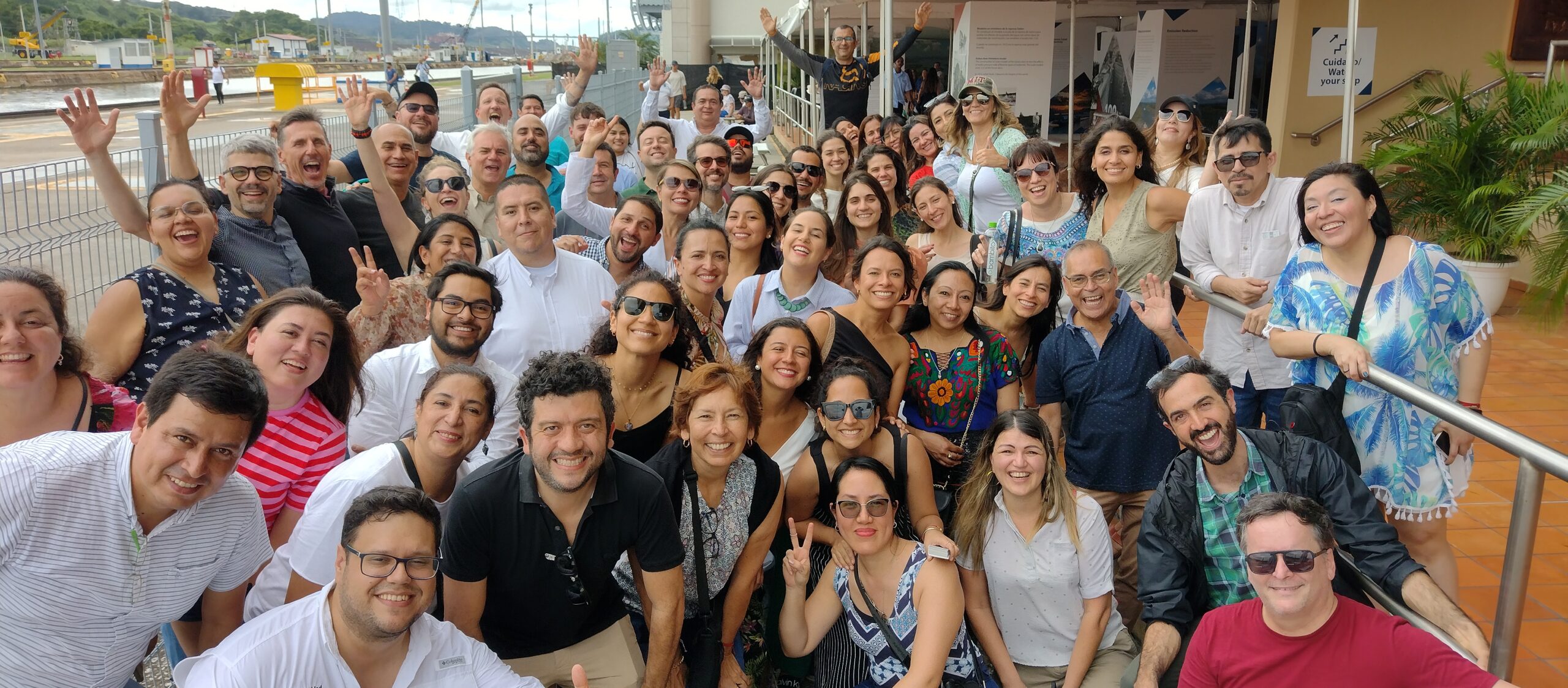
Although we started the process of integration of the South America and the Central America regions in November 2022, the actual integration took place throughout 2023. We introduced a new organisational structure that enables growth, while making our operations more efficient (reducing costs was a priority since the Central America region faced a deficit in 2022).
The majority of employees of the former Central America region have been integrated into a new organizational structure, which was launched in the first quarter of 2023, along with updated job descriptions for those whose roles changed. We also hired a new Mesoamerica Manager who is part of the management team of the new consolidated region, and who now supervises country leads in the former Central America region. At the regional level, we consolidated South America’s digital unit and Central America’s IT activities under cohesive leadership.
The Project Management and Evaluation unit, Finance, and Human Resources were also integrated to deliver services from Mexico to Argentina. The communications area has been operating at the continental level for various years. In terms of finance, we consolidated financial accounts in 2023 with a principle of no subsidies between South America and Central America. In terms of messaging and the reporting of results, this is the first annual plan that we are presenting as the combined Latin American region.
New countries
We have started a collaboration with Pernod Ricard to carry out an assessment of sustainable sugarcane in Cuba.
Solidaridad remains committed to maintaining a good gender balance across the entire region, which reflects our dedication to diversity and inclusion. This commitment is evident in the organization’s balanced representation of both genders.
| COUNTRY | FEMALE | MALE | TOTAL |
|---|---|---|---|
| Argentina | 8 | 1 | 9 |
| Brazil | 32 | 38 | 70 |
| Colombia | 91 | 120 | 211 |
| Guatemala | 7 | 1 | 8 |
| Honduras | 6 | 4 | 10 |
| Mexico | 8 | 19 | 27 |
| Nicaragua | 4 | 8 | 12 |
| Panama | 1 | 1 | |
| Paraguay | 4 | 2 | 6 |
| Peru | 41 | 50 | 91 |
To ensure alignment with organizational goals and foster a culture of continuous improvement, we have strengthened our performance management process. This strategic approach has enabled the organization to track objectives, provide constructive feedback to employees, and identify development opportunities.
Maintaining a culture of integrity is a top priority for Solidaridad. We actively encourage open communication, and our employees feel empowered to raise concerns or complaints without fear of reprisal. Periodic global surveys measuring perceptions of integrity, diversity and inclusion have yielded positive results. Based on these results, an action plan was defined and implemented to further enhance our commitment to these values.
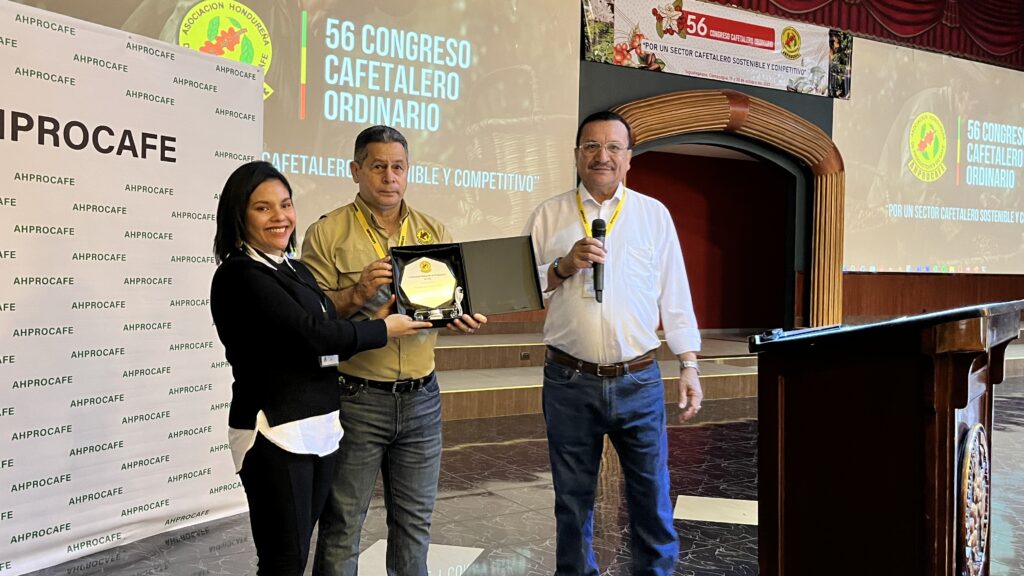
In 2023, Solidaridad received awards that not only validated our experience with producers in Latin America, but also served to amplify the reach of our sustainable solutions. In Honduras, both Solidaridad and Sofia Núñez, Country Lead in Honduras, received awards from the Honduras Coffee Institute (IHCAFE) and the Honduras Coffee Growers Association (AHPROCAFE) for their support to strengthen the competitiveness and sustainability of the Association. Maria Goretti Esquivel, our Palm Oil Manager in Colombia, was bestowed with an award by Fedepalma (National Federation of Oil Palm Growers) for her unwavering dedication to promoting sustainable practices within the sector. Additionally, our coffee programme in Colombia was recognized with the Environmental Order of Merit, Primitivo Briceño Moreno by the Regional Autonomous Corporation of Risaralda (CARDER).
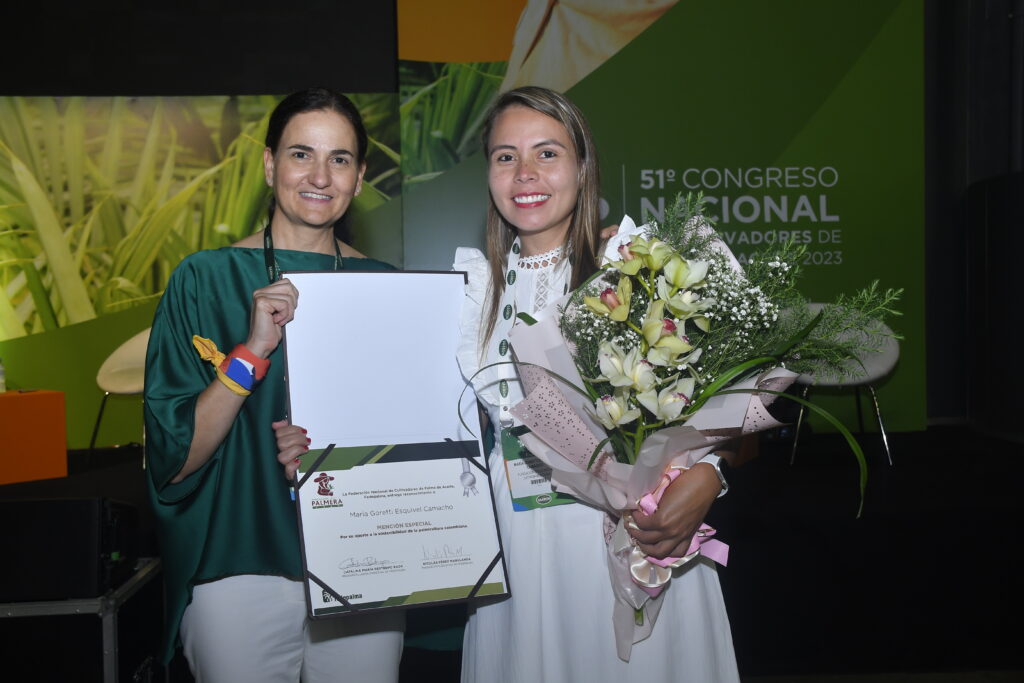
In Brazil, Solidaridad was honoured with the Citric Center Sylvio Moreira Award for its role in supporting the development of the country’s citric sector through the Fruto Resiliente project. Cocoa producers Francisco Cruz and João Rios – who participate in Solidaridad’s Amazon programme in the Brazilian state of Pará – were awarded second and third place, respectively, in the blend category of the V National Special Cocoa Contest: Sustainability and Quality, promoted by the National Special Cocoa Quality Committee (CNQCE). With these prizes, cocoa beans from the Tuerê settlement, as well as the chocolates produced with them, have now won 32 awards in total.
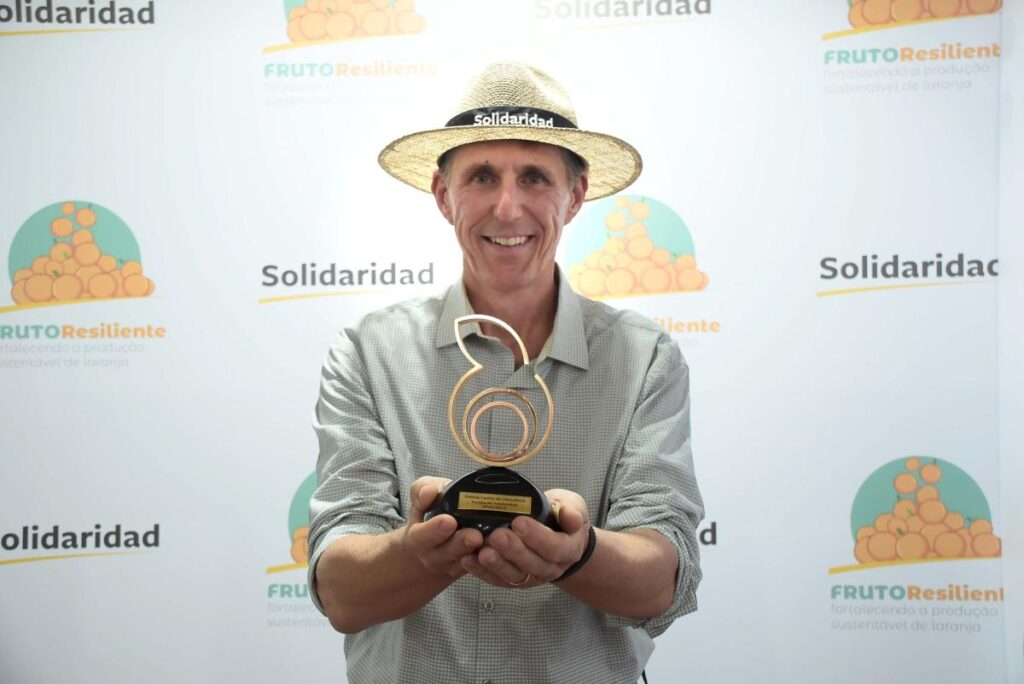
In Mexico, our partner Pantaleon Group obtained the Sedex Sustainability Award for the contribution to the Mexican sugarcane industry by our collaborative effort with Bayer to the project Más Caña II. Similarly, in Peru, MicroSoft was granted the Boscares Award for their contribution to forest conservation in the joint initiative with Rabobank Asómbrate, where it provides satellite monitoring for the verification process of climate-smart agricultural production.
Throughout the year, our teams organized events to recognize the dedication of small farmers to sustainability. Such was the case of the Choco Show in Colombia. Here, we celebrated with the first cocoa families who received payments for their agroforestry practices, singing the Asombrate anthem, which has hit more than 100k views on YouTube. Also, in Colombia, we organised an event to acknowledge the first small oil palm growers to receive the RSPO certification.
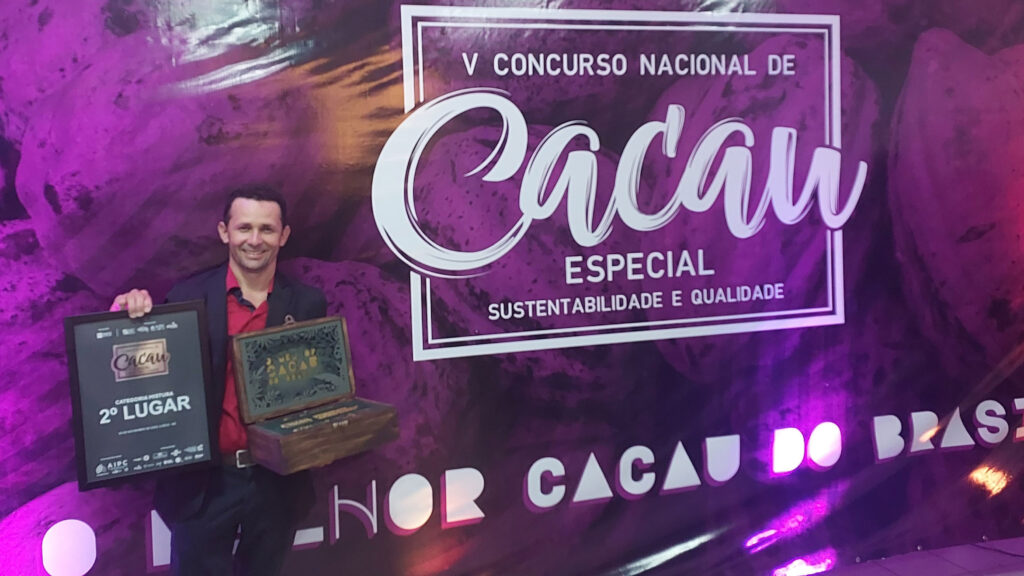
In our social channels, “Farmers First” has also been our guiding principle as we marked International Solidarity Day to thank all rural producers who continue to uphold sustainable and responsible practices in their work. Furthermore, on International Coffee Day, we celebrated coffee producers and encouraged them to “contribute their own grain of coffee” (#GranitoDeCafé) by growing it in an environmentally friendly way and adopting agroforestry systems.
On International Women’s Day, we spotlighted the achievements of women involved in our projects, amplifying their voices and accomplishments. Subsequently, on Rural Women’s Day, we sent out a call to action to women who may be hesitant to pursue their own agricultural journey, urging them to take the first step. Lastly, we tried to bring our staff closer to our audience by letting our team members share reflections on how working in sustainability and alongside producers has profoundly impacted and enriched their professional lives.
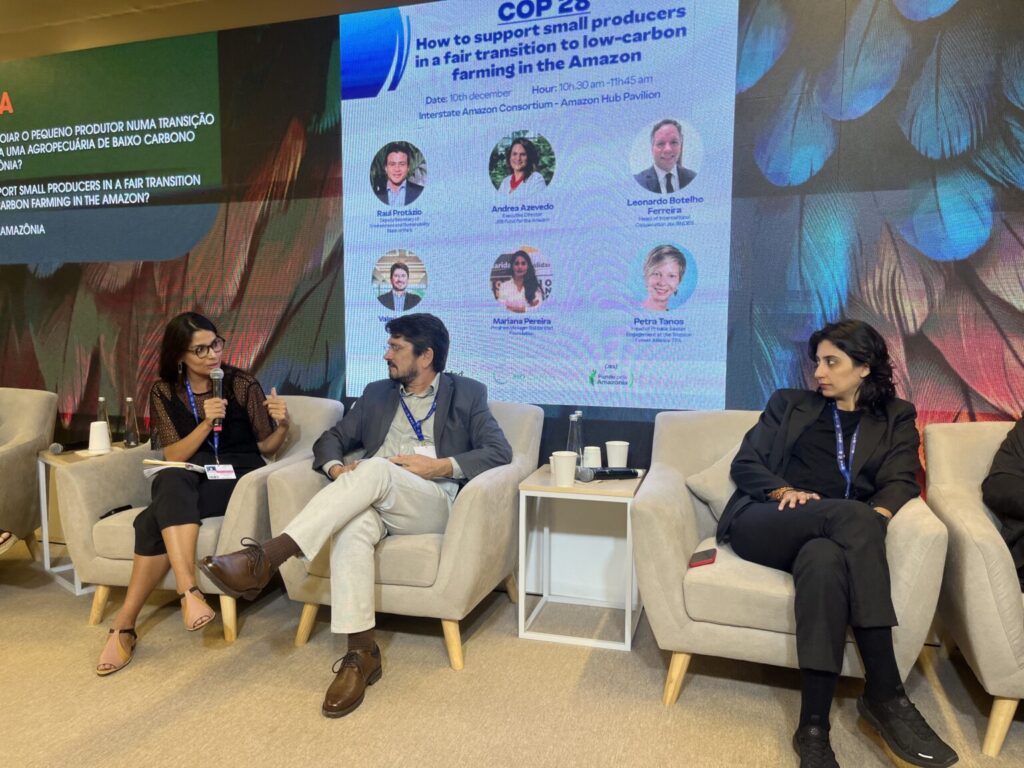
As speakers, our experts shared their experiences and advocated for inclusive solutions to the primary challenges in the sectors in which Solidaridad operates. During COP28 in Dubai, Mariana Pereira, our programme manager from Brazil, participated in the panel titled, Food Systems and Regenerative Agriculture: From COP28 to COP30. Here, she discussed the advancements in public policies for environmental regulation and payment for environmental services (PSA) for family farming in Pará, the Amazon region that will host COP30.
At events such as SCA in Portland, World of Coffee in Athens and the Global Coffee Platform meeting in Germany, representatives from Honduras, Colombia and Brazil shared the benefits of expanding small producers’ access to carbon markets. This expansion aims to address the challenges small producers face with climate change and provide incentives for the environmental services that they offer.
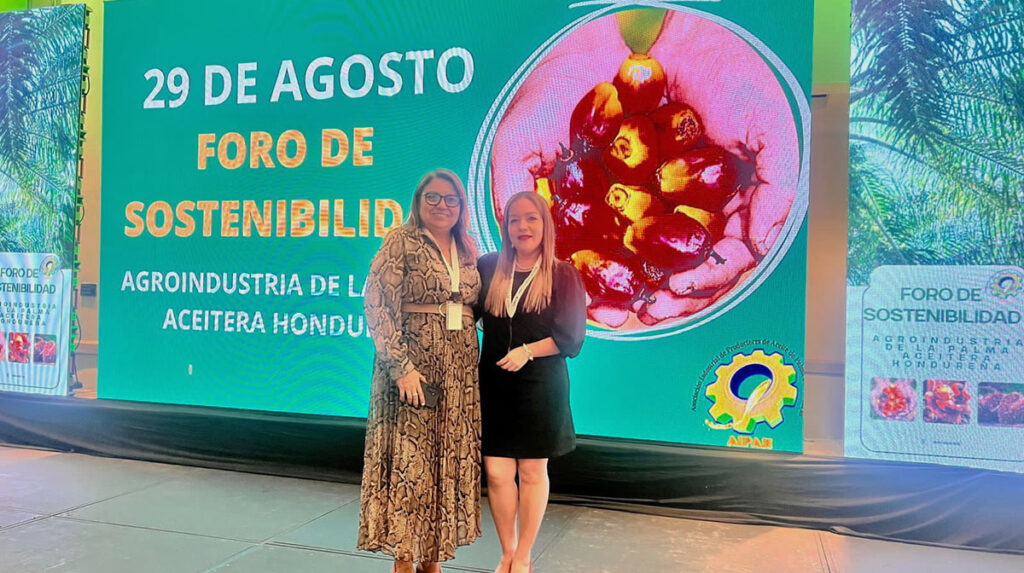
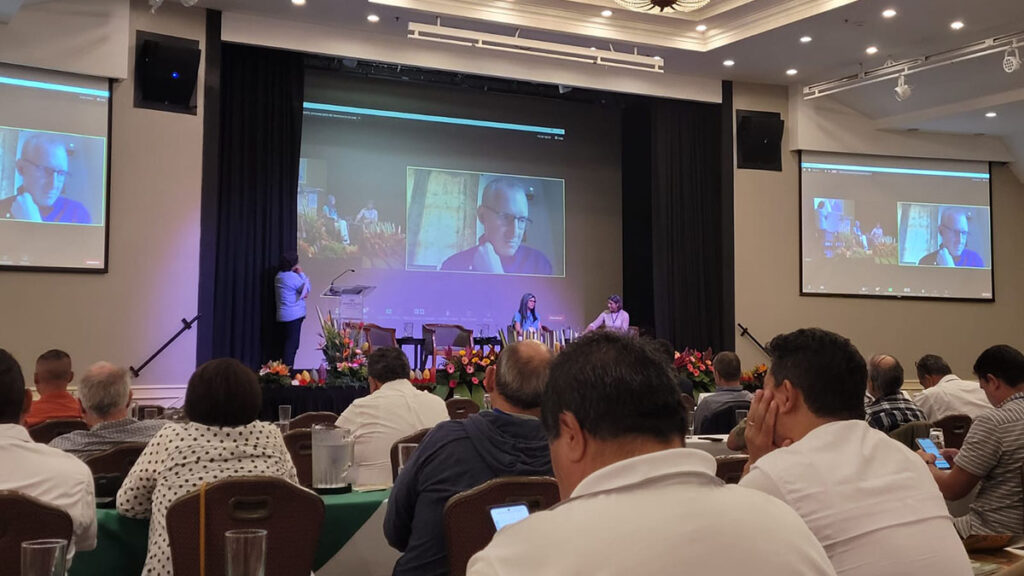
Sofía Núñez, Al Cuningham and Angélica Fort discussed the implications of new European Union legislation at the Honduras Oil Palm Agroindustry Sustainability Forum, the Latin American-Caribbean Cocoa Forum and the Latin American Cocoa and Chocolate Forum.
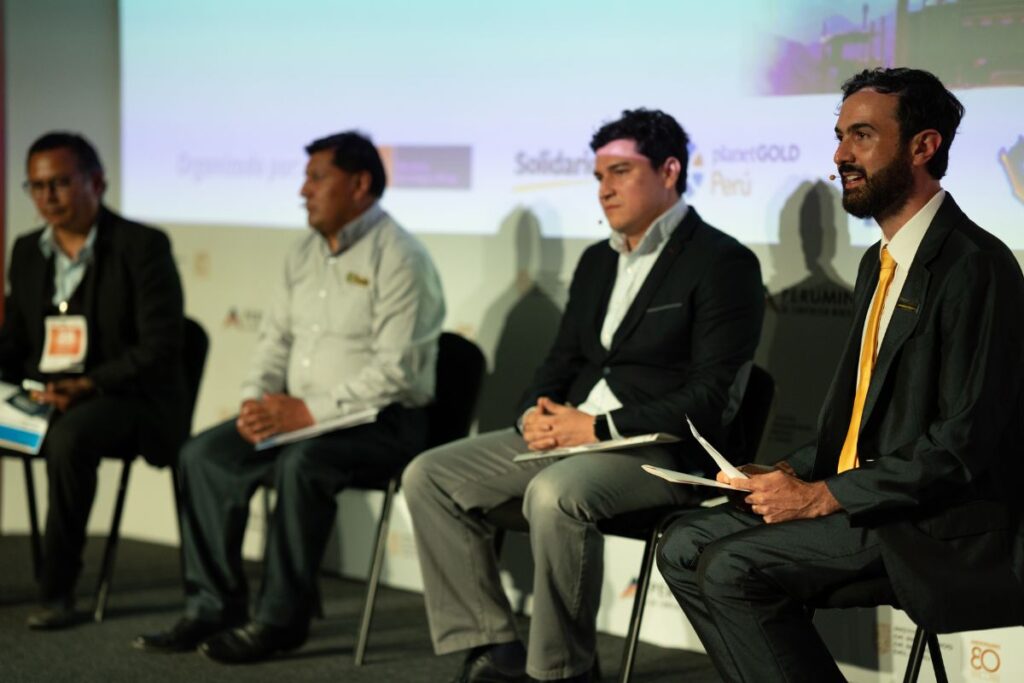
In collaboration with the PlanetGOLD Peru project and the Peruvian Ministry of Energy and Mines, our mining programme organized a session to raise awareness around solutions for the financial inclusion of Artisanal and Small-Scale Mining (ASM) miners at PERUMIN, the largest mining event in the region.
In 2023, Solidaridad Latin America made significant strides towards becoming a data-driven organization. The countries in the region strengthened their planning, monitoring, evaluation and learning (PMEL) teams. Key actions included improving systems and tools for collecting, managing and using data; documenting valuable lessons learned; evaluating the performance of selected interventions; and generating agreements at the regional level to align efforts and ensure data quality.
In addition to these organizational improvements, key evaluations and studies were conducted to generate insights and inform future strategies. Below, we highlight some of these efforts in the region:
- In Paraguay, the Extension Solution APP is used to monitor and evaluate project indicators. This approach allowed us to publish key findings from the Sustainable Soy project, conducted in partnership with Cargill, and assess the level of compliance achieved by each producer.
- In Brazil, we published a lessons-learned document from the Muda Cana programme. Over the course of six years, the program has provided many insights into strengthening sugarcane producer associations to provide better services to growers.
- In Colombia, a qualitative impact evaluation for the Farm2Bar project in María La Baja, Bolívar was carried out. The results of the evaluation showed that oil palm growers have noticed changes in their productive practices after connecting with Solidaridad. The changes are very clear regarding managing hazardous solid waste (agrochemical containers), knowledge about recycling and care for the environment. Moreover, some producers mentioned improvements in cultivation tasks due to greater knowledge of good practices and relate how this has helped them increase their productivity.
- In Honduras, a vulnerability analysis was carried out for 348 coffee smallholders (of whom 30 percent are women). The analysis was conducted with the aim of assessing the vulnerability and adaptive capacity of smallholder farmers to climate change. The results reflect that there is high vulnerability and low adaptive capacity in 25 percent of producers, and moderately critical vulnerability and adaptive capacity in 40 percent of producers.
- In Mexico, we carried out our first net-income study to provide insight into the living conditions of coffee growers, their current production models, and the challenges they face. This information allowed us to reshape the strategy of our joint project with Nestle.
- In Nicaragua, we conducted a comprehensive assessment of the baseline of two projects for small-scale coffee and cocoa producers in the region. The main objective of this evaluation was to gain a better understanding of the initial state of production operations, as well as to identify the climate-smart practices already being implemented by the producers. The evaluation revealed a variety of production yields among the small-scale producers surveyed. It was found that some producers were achieving optimal production levels while others faced significant challenges such as low productivity and quality issues.
- In Peru, the mid-term evaluation of the Café Circular project was conducted and the project closure plan was prepared. The evaluation found significant progress in implementing circular agriculture in coffee-growing communities. Technological innovations have been developed for crop management, waste treatment and bio-input production. At the social level, women were empowered and family food security was strengthened. Family orchards have been created and the formalization of coffee land was promoted. However, there are challenges to ensuring the sustainability of the results, such as the volatility of the coffee market and the need to strengthen producer organization. The project completion plan will focus on defining strategies for sustainability, ways to disseminate the experience to other actors, and strengthening the organization of producers.
Finance
The most important change was the merger of the financial figures of REC CAM and REC SAM to become REC LATAM. The merger entailed changes in budget management, financial control and internal financial processes.
Before the merger, REC CAM had a budget of 3.8 million euros, of which only 1.1 million euros were secured funds. Despite the financial restructuring and receiving new funds from Bayer (247 thousand euros), Reforestadora de Palma del Peten – HAME (280 thousand euros), and Ingenio Panuco (275 thousand euros), preliminary figures suggest that our office in Guatemala may face a deficit by the end of 2023. However, we expect this deficit to be reversed in 2024 with the injection of new funds.
Income:
Based on our preliminary figures, for 2023, we have recognized 3 million euros more as revenue than we had budgeted. The budget of REC SAM + REC CAM on secured funds was 14.8 million euros, and the total recognized income is 18 million euros, of which some of the main donors were: the Dutch Government (2 million euros), GIZ (1 .6 million euros), NPL (1.2 million euros), USAID (1.1 million euros) and JBS (1 million euros).

New donors are the Government of Suriname (764 thousand euros), Conservation International (698 thousand euros) and GIZ (796 thousand euros), among others.
Expenditure:
Compared to 2022 and in percentage terms, in 2023, salary expenses decreased from 51 percent to 42 percent, administrative and communication expenses decreased from 15 percent to 9 percent, and partner and consultant expenses increased from 15 percent to 33 percent. Activity expenses remain almost the same (from 17 percent to 15 percent).

The complete audited annual statements of 2023 are available.

